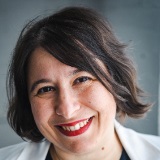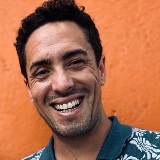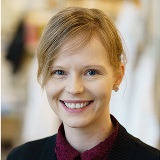2025年 講演者
Speaker Biographies
Filter by:
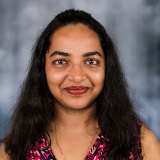
Sonia Agrawal, PhD, Associate Principal Scientist, Biologics Engineering, AstraZeneca

Dr. Sonia Agrawal is an Associate Principal Scientist, Genomics in In Silico Sciences and Automation team within Biologics Engineering at AstraZeneca. She leads the NGS group bringing together scientists across AZ UK and US sites to adopt standard Bioinformatics analysis methods and sequencing platforms to drive antibody discovery. With 15+ years of experience in Bioinformatics, she has been instrumental in performing large scale omics data analysis for various pipeline projects in all therapeutic areas at AZ. With a background in Computer Science & Engineering, Dr. Agrawal holds two Masters degrees and a PhD in Epidemiology and Human Genetics.

John A. Allen, PhD, Associate Professor, Pharmacology & Toxicology, University of Texas Galveston

Dr. John Allen brings over 15 years of experience in molecular neuroscience and drug discovery and development. He holds a doctorate in Physiology and Pharmacology from the University of Illinois-School of Medicine, and completed postdoctoral work at the University of North Carolina-Chapel Hill followed by several years working at Pfizer Neuroscience. He then returned to academia to build an academic drug discovery research program and is currently an Associate Professor of Pharmacology at the University of Texas Medical Branch (UTMB), Galveston, Texas, USA. John leads a laboratory focused on discovering GPCR targets and small molecules that modulate the basal ganglia, a highly-conserved brain region in vertebrates that controls motivation, reward, decision making, and motor functions. He is the recipient of several awards including a NARSAD Young Investigator Award, ACNP Young Investigator Award and a PhRMA Foundation Research Starter Award. His research has made important advances in drug discovery for GPCRs in translational studies for neuropsychiatric disorders and Parkinson’s disease.

Richard Altman, MS, Field Application Scientist, Life Science Solutions, Thermo Fisher Scientific

Rich Altman has 30 years of experience in protein expression and production. In early 2019, he joined Thermo Fisher Scientific as a Field Application Scientist. Previously, he worked for several pharmaceutical companies, including Amgen, Alexion, Bayer, and Upjohn, on the cloning, expression, purification and characterization of recombinant proteins. This work supported both small-molecule high-throughput screening and protein therapeutic efforts. He received his MS degree from the University of Pittsburgh School of Medicine in the Department of Molecular Biology and Biochemistry.

Praveen Anand, PhD, Data & Analytics Lead, Data Science and Analytics, UCB Pharma

Praveen Anand is a computational biologist with extensive experience in bioinformatics, oncology, and digital health. Praveen holds a Ph.D. from the Indian Institute of Science, where he conducted large-scale structural analyses of protein-ligand interactions, contributing to anti-tubercular drug discovery. His post-doctoral training at Harvard Medical School/Broad Institute/Dana-Farber Cancer Institute focused on single-cell technologies and resistance mechanisms in liquid tumors. He has held significant roles, including Team Lead/Principal Scientist at nference, where he led a bioscience team to develop AI models for disease progression and treatment outcomes. Praveen has also served as Associate Principal Scientist at AstraZeneca, leading computational analyses of multiomic datasets. Currently, he is the Data & Analytics Lead at UCB, providing insights for target identification and validation. His work has resulted in over 35 research manuscripts, 2 patents, and more than 1200 citations. His expertise spans genomics, structural bioinformatics, clinical research, and AI/ML applications in healthcare.
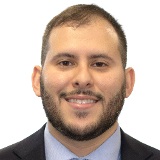
Angelo Andres, Senior Scientist, Chemical Biology, AstraZeneca

Angelo Andres is a Senior Scientist within the Chemical Biology & Proteomics group at AstraZeneca. Before embarking on his scientific journey he served in the GWOT with the U.S. Army. He then earned a PhD in Medicinal Chemistry from The University of Kansas where he specialized in the development of cellular probes and assays to study live cell target engagement by small molecules. At AstraZeneca he collaborates across functions to develop lysosomal degradation modalities, generate synthetic probes to facilitate lead generation, and applies proteomics to support drug discovery programs across multiple therapeutic modalities spanning small molecules, degraders, and cell therapies.

Randolph Ashton, PhD, Associate Professor, Biomedical Engineering, University of Wisconsin-Madison & Wisconsin Institute for Discovery

Randolph S. Ashton received his B.S. from Hampton University (Hampton, Virginia, 2002) and Ph.D. from Rensselaer Polytechnic Institute (Troy, NY, 2007) in Chemical Engineering. During graduate studies under Prof. Ravi Kane, he researched how engineering biomaterials at the nanoscale could regulate the fate of adult neural stem cells. He continued to pursue his interest in stems cells and tissue engineering as a California Institute for Regenerative Medicine and a NIH postdoctoral fellow at the University of California Berkeley’s Stem Cell Center in the lab of Prof. David Schaffer. In 2011, he was appointed to a faculty position in the Wisconsin Institute for Discovery at the University of Wisconsin-Madison as an Assistant Professor of Biomedical Engineering. In 2018, he was promoted to an Associate Professor of Biomedical Engineering and appointed as the Associate Director of the UW-Madison Stem Cell and Regenerative Medicine Center. The goal of Dr. Ashton’s research is to bioengineering human tissues that can be used as tools or therapeutics to prevent or cure central nervous system (CNS) disorders. His lab currently melds state of the art biomaterial approaches with novel human neural stem cells derivation protocols to bioengineer brain and spinal cord cells and tissue models in vitro. In 2021, Prof. Ashton and collaborators embarked on a technology start-up, Neurosetta LLC, to translate the lab’s innovations for developmental neurotoxicology, neurodevelopmental disease modeling, and drug discovery applications. Dr. Ashton has helped author 44 journal publications (h-index=26, i10-index=35, 3319 citations), 1 book chapter, and is an inventor on 3 US Patents. Among his awards and honors, Dr. Ashton was named a Fellow of the American Institute for Medical and Biological Engineering in 2023, a 2020 Innovation of the Year Awardee by the Wisconsin Alumni Research Foundation, a 2018 Equity & Diversity Awardee by the UW-Madison College of Engineering for scientific outreach activities, a 2017 NSF CAREER Awardee, a 2016 Young Faculty Investigator Awardee by the Regenerative Medicine Workshop at Hilton Head, a 2015 Emerging Investigator by Chemical Communications, and a 2013 Rising Star by the Biomedical Engineering Society’s Cellular and Molecular Bioengineering Special Interest Group. Also, he has received a Burroughs Wellcome Fund Innovation in Regulatory Science Award, Draper Technology Innovation Awards from the Wisconsin Alumni Research Foundation, and Basic and Translational Research Awards from the UW Institute for Clinical & Translational Research. Additional support of his research has been garnered from the NIH, EPA, and Thermo Fisher Scientific.

Brian Avanzino, PhD, Director, Rondo Therapeutics

Brian Avanzino is Director of Discovery Research at Rondo Therapeutics where he leads teams focused on the discovery and development of novel multispecific antibodies for the treatment of solid tumors. Previously, he spent time at Amgen and Teneobio where he served as project team lead for a number of T cell engager programs. Brian holds a PhD in Biochemistry and Molecular Biology and a BS in Biological Sciences from the University of California, Davis.

Svetlana Belyanskaya, PhD, Co-Founder, DEL Source; Former Vice President, Biology, Anagenex

Dr. Belyanskaya is an accomplished scientific leader in the field of small molecule drug discovery and an expert in DNA encoded library technology. She has been an instrumental player in the discovery of the first DEL-sourced molecule to progress into clinical trials. For more than 20 years she has been working in the DEL field and has made a significant contribution to the development of this platform at Praecis Pharmaceuticals, GlaxoSmithKline, Anagenex Inc. She is passionate about DEL platform development and constantly publicizing this technology at scientific conferences and seminars. She has multiple publications in the field of DEL technology, has taught short courses on DEL, and works as a consultant for startup companies. Dr. Belyanskaya held senior positions in the leading cross-functional team at GSK and has served as a Vice President of Biology at Anagenex Inc. Currently, she is a co-founder and a member of the executive team at DEL Source Inc. (LinkedIn).

Dan Benjamin, PhD, CTO, Radical.Bio

Dr. Daniel Benjamin is the Co-Founder and Chief Technology Officer of Immuto Scientific/Radical Bio, where he leads strategy and execution of platform and therapeutic-focused research and development. He co-invented the company’s core technology for native-state, omics-level structural biology which is used to identify “Surface Protein Conformers” (SPCs)-disease-specific protein conformations that expose unique epitopes found only in cancer. Under his leadership, this novel target identification platform has fueled the discovery and development of highly selective antibody therapies that maximize tumor specificity and minimize off-target effects. Through successful industry partnerships, Dr. Benjamin has enabled the company to integrate pioneering structural insights with advanced AI-driven discovery to bring transformative therapies to patients.

Shruthi Bharadwaj, PhD, Program Leader, MIT Lincoln Laboratory

Shruthi Bharadwaj is Global Lead, Digital & Analytics, R&D Global Operations at Sanofi. Until recently she served as the Technical Advisor to the Chief Data and Digital Officer at Novartis. She received her PhD in Biomedical Engineering from the University of Florida and continued her research as a post-doctoral fellow at the MD Anderson Cancer Center. Shruthi has been interested and involved in utilizing AI and machine learning approaches in Pharma. She has a patent that involves machine-learning approach to predict the onset of colon cancer in patients with Inflammatory Bowel Disease. She has won several NIH grants that supported her research in leveraging AI approaches in healthcare. She has published several research articles, book chapters and abstracts that focus on AI approaches in diagnosis and drug development.

Hans-Peter N. Biemann, PhD, Distinguished Scientist, Integrated Drug Discovery, Sanofi

Hans-Peter Biemann has originated innovative discovery programs and applied emerging small molecule technologies during tenures in Genzyme’s and Sanofi’s Drug Discovery units. Contributions on preclinical and clinical agents have included partnerships with academic leaders and start-ups. Working across various disciplines (protein biochemistry, cell biology, structural biology, biophysics), Hans has conducted and led phenotypic, fragment-based, and HTS-based drug discovery. He established productive FBDD, high-res Cryo EM drug design, Affinity Selection Mass Spectrometry over the past 15 years at Sanofi/Genzyme. Prior to joining Genzyme in the 1990s, he completed a post doc in Daniel Koshland’s U.C. Berkeley group and trained in Raymond Erikson’s Harvard group (PhD). His B.S. was earned at Yale.
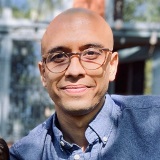
Surge Biswas, PhD, Founder & CEO, Nabla Bio, Inc.

Surge is a co-founder and the CEO at Nabla Bio, an antibody design company. Surge received his PhD from George Church’s lab. There, he and his colleagues pioneered the development of protein language modeling, a technology that has been central to state-of-the-art protein structure prediction and machine learning-guided protein design. Outside of Nabla, Surge enjoys hanging out with his wife and Nabla co-founder, Frances, and their two dogs, Archie and Riley.

Lotte Bjerre Knudsen, PhD, Chief Scientific Advisor, Head of IDEA (Innovation&Data Experimentation Advancement), Novo Nordisk AS

Lotte Bjerre Knudsen is a Danish national, born in 1964 in a small town near Copenhagen. She holds a degree in biotechnology from the Technical University of Denmark, and a Doctoral degree in Scientific Medicine from the University of Copenhagen, Denmark. Lotte has been with Novo Nordisk since her university graduation in 1989 and has since then held several positions within the company and is today Chief Scientific Advisor in Research & Early Development and heads up IDEA (Innovation and Data Experimentation Advancement). She has deep experience across the entire value chain of drug discovery and development and has published extensively. Lotte is an inventor on many patents, all fully owned by Novo Nordisk. She has been part of representing Novo Nordisk in five FDA Advisory committees. Lotte has received numerous awards. Most recently, she was the recipient the Paul Langerhans Award from the German Diabetes Association and a co-recipient of the American Association for the Advancement of Science Mani Bhaumik Breakthrough of the Year Award, the Lasker Foundation Lasker-DeBakey Clinical Award and the Breakthrough Prize in Life Sciences.
- Emerging Cancer Targets for Multispecifics, ADCs, and Biologics
- AI/ML-Enabled Drug Discovery - Part 2
- AI/ML-Enabled Drug Discovery - Part 1
- GPCR-Based Drug Discovery
- Targeting Transcription Factors & Regulators
- Lead Generation Strategies
- Small Molecules for Cancer Targets
- Targeting MASH & Obesity
- Antibodies Against Membrane Protein Targets
- RNA & DNA Targeting Small Molecule Drugs
- Emerging Drug Targets: Identification & Validation
- Degraders & Molecular Glues - Part 2
- Degraders & Molecular Glues - Part 1
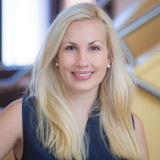
Ann Boija, PhD, Senior Vice President, Head of Research, Dewpoint Therapeutics

Ann leads the Research team at Dewpoint focusing on advancing condensate science into breakthrough medicines for patients. Ann has longstanding expertise in gene control and condensate biology. Throughout her career she has focused on novel biomedical science that can be translated into medicine to alter the course of disease and improve human health. Ann has a master’s degree in Biomedical Sciences from Umeå University and a PhD in Biology from Stockholm University, Sweden. She did her postdoctoral training at the Whitehead Institute of the Massachusetts Institute of Technology (MIT). During her time at MIT, she led pioneering research focused on the role of condensates in gene control and cancer therapeutic drug activity.

Kris A. Borzilleri, Principal Scientist, Structural Biology & Molecular Sciences, Pfizer Global R&D, Groton Labs

25+ years of experience within Pfizer Research and Development focusing on target-ligand interactions using a variety of biophysical techniques. The earlier part of my career was spent was largely focused on protein NMR techniques to solve protein structures and evaluate ligand binding. In an effort to provide greater impacts, my efforts turned towards a variety of biosensing techniques (SPR, BLI, SPRm) to access binding interactions for targets across the Pfizer portfolio. With recent technology development, I have been able to apply these biophysical techniques to membrane proteins in the whole cell environment as well as in membrane preparations.

Anthony Bradley, D.Phil, Assistant Professor, Department of Chemistry, University of Liverpool

Dr. Bradley is a multi-disciplinary scientist in computer-aided compound design using structural data. He completed a first-class MChem in Chemistry from the University of Oxford in 2010. He carried out an interdisciplinary DPhil also at the University of Oxford on the SABS-IDC programme. During this he developed computational tools (OOMMPPAA and WONKA) for structure-based drug design-working with the SGC Oxford and GlaxoSmithKline. Subsequent to his DPhil, he carried out a postdoc at the RCSB PDB (UC San Diego) where he worked on novel compression algorithms for macromolecules, including the MMTF file format. He then worked as a Project Leader with the Oxford Chemistry department, Diamond Light Source, and the SGC Oxford on the XChem project (high-throughput X-ray screening of fragments). Here he generated tools and future funding for fragment-based compound optimisation leveraging the XChem platform. From 2018 to 2024, he worked at Exscientia, where he developed their physics-based drug discovery platform. Now he leads an academic group at the University of Liverpool where his interests lie in using computation and automation to accelerate drug design.

Paul Brennan, PhD, Professor, Nuffield Department of Medicine, University of Oxford

Paul Brennan received his PhD in organic chemistry from UC Berkeley. Following post-doctoral research at Cambridge University, Paul spent eight years working in the pharmaceutical industry at Amgen and Pfizer. After leaving Pfizer in 2011, Paul joined the Structural Genomics Consortium at the University of Oxford and led the chemical probes discovery effort on epigenetic targets. After leaving the SGC in 2019, Paul was Head of Chemistry and then Chief Scientific Officer of the Alzheimer’s Research UK Oxford Drug Discovery Institute where his research was focused on finding new treatments for dementia. In addition to dementia, over the course of his career, Paul has worked on discovering new medicines for cancer, incontinence, pain, rare diseases, and inflammation. Paul is currently Professor of Medicinal Chemistry and Director of the Centre for Medicines Discovery at the University of Oxford and a scientific advisor to the biotech and pharmaceutical industries. His research centre is focused on early medicines discovery for poorly treated diseases.
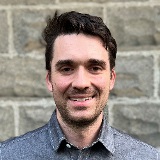
Benjamin Brigham, PhD, Senior Scientist, Biophysics, Atavistik Bio

Benjamin S. Brigham is a Senior Scientist, Biophysics at Atavistik Bio. At Atavistik Bio he is responsible biophysical screening and hit characterization. Benjamin has long standing interest and extensive experience in RNA biophysics and biochemistry. He leads the RNA targeted drug discovery group at Atavistik Bio. Previously, he has worked at NextRNA Therapeutics, Kronos Bio, and Alnylam Pharmaceuticals. Benjamin received his PhD from Tufts University where he studied the structural dynamics of HIV-1 genomic RNA 5' UTR using single molecule FRET.
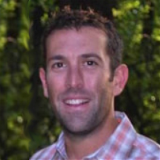
John Brognard, PhD, Senior Investigator, Laboratory of Cellular & Developmental Signaling, National Cancer Institute, National Institutes of Health

John obtained his PhD from University of California, San Diego in Dr. Alexandra Newton’s laboratory, where he discovered a novel class of phosphatases that directly regulate AKT. John then trained as a postdoctoral fellow in Dr. Tony Hunter’s laboratory at the Salk Institute. He joined the CRUK Manchester Institute as a group leader where his lab focused on identifying mechanisms to promote lung tumorigenesis. John then moved to the NCI and his research is focused on defining novel enzymes that act to suppress or promote tumorigenesis and in some cases can serve as novel targets for therapeutic intervention. The lab has several ongoing collaborations with pharmaceutical companies to investigate novel inhibitors targeting newly identified kinases implicated in cancer.

Kenneth Bromberg, PhD, Senior Principal Research Scientist, AbbVie Inc.

Kenneth Bromberg is a Senior Principal Research Scientist in Oncology Discovery Research at AbbVie. His current focus is within cancer immunotherapy, and he has expertise in epigenetics and DNA damage/repair. He has led discovery program across a spectrum of drug discovery stages. He earned his PhD from Vanderbilt University in Biochemistry and performed his post-doctoral fellowship at Mount Sinai School of Medicine (New York) in the Oncological Sciences and Pharmacology departments.
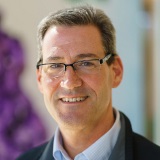
Jonathan Brooks, Principal Scientist, Inflammation & Remodeling, Pfizer Inc.

Jonathan began his career at Genetics Institute in 1990 developing immunoassays for use in pharmacokinetics and process development. Jon has over 30 years of experience in label free analysis of receptor ligand interactions and small molecule target binding associated with several respiratory and inflammatory disease areas. Currently, he is a principal scientist in the inflammation and Immunology drug discovery research unit at Pfizer in Cambridge Massachusetts. His current focus is on-cell target interaction analysis using SPRm. Jon received his MS in Biology from Harvard University.

Dean G. Brown, PhD, Vice President & Head, Chemistry, Jnana Therapeutics

Dean Brown is VP and Head of Chemistry at Jnana Therapeutics. Prior to Jnana, he was Director of Chemistry at AstraZeneca within the Hit Discovery Department, Discovery Science IMED Biotech Unit. He obtained a B.S in chemistry at Abilene Christian University (Abilene, TX) and a Ph.D. at the University of Minnesota (Minneapolis) in organic chemistry. He has over 20 years of experience in industry with AstraZeneca. Dean has been responsible for building many new scientific programs in both neuroscience and infection, several which have resulted in successful transition to clinical trials. His scientific interests are in lead generation, library design, DNA-encoded library screening, synthetic chemistry and applications of computational chemistry. Dean is listed as an author or co-author on more than 60 publications and patent applications in medicinal chemistry and drug design, including granted patents on clinical candidates.

Florence Brunel, PhD, Senior Principal Scientist, Novo Nordisk Inc

Florence was born and raised in France. She obtained a MS from the Ecole Nationale Superieure de Chimie de Montpellier, and then moved to the US. She obtained her Ph.D. with Prof. Arno Spatola at the University of Louisville, where her love of and career in peptides started. She then moved to San Diego to pursue her postdoctoral training with Dr. Phil Dawson at Scripps Research where she continued working with peptides while learning new methodologies such as chemical ligation. Florence then took her interest in turning peptides into drugs to the biotech and pharmaceutical industry at companies like Amylin Pharmaceuticals, Pfizer/CovX and Vertex Pharmaceuticals. Florence is now an employee of Novo Nordisk where her role has evolved into project management of internal projects and external collaborations, as well as identifying new technologies to meet Novo Nordisk’s strategy. Florence remains very active in the peptide community as an elected council member for the American Peptide Society, a board member for TIDES and the elected chair of the 2026 Chemistry and Biology of Peptides Gordon Research Conference.

Matthew Bryant, PharmD, Vice President, Medical Affairs, Boston Pharmaceuticals

Dr. Matthew Bryant is the Vice President and Head of Medical A?airs at Boston Pharmaceuticals. He has 25 years of pharmaceutical, biotechnology, and medical device industry experience developing and commercializing numerous new medicines in hepatology, gastroenterology, oncology, respiratory, infectious, and rare diseases. As part of the executive leadership team, he has plays an instrumental role in the clinical development of efimosfermin in MASH at Boston Pharmaceuticals. Previously, he has served on the executive team as Vice President of Medical A?airs for 9 Meters Biopharma where he developed incretin analogues for rare diseases, and Eiger Biopharmaceuticals where he launched a new drug in ultra-rare disease and developed an antiviral for hepatitis. At Bayer Pharmaceuticals he launched three new medicines and worked directly with US payers and healthcare decision-makers as Deputy Director of Data Generation and Outcomes Research. At Theravance Biopharma, he was appointed as the Medical A?airs Launch Leader where he launched a new respiratory COPD drug as part of a strategic partnership with Mylan (Viatris). Over his tenure at Salix Pharmaceuticals, he developed and launched many new drugs in gastroenterology and managed a team of medical science liaisons until Salix was acquired by Valeant Pharmaceuticals (Bausch Health). He also held roles of increasing responsibility at InterMune which was acquired by Genentech, MicroScan (Part of Beckman Coulter), and LifeScan (a Johnson & Johnson company). Dr. Matthew Bryant is an Assistant Clinical Professor at UCSF and is the President of the UCSF Pharmacy Alumni Association. He is a Stanford University SPARK start-up advisor. Dr. Matthew Bryant earned a Bachelor of Science degree from Oregon State University, a Doctor of Pharmacy degree from the University of California, San Francisco, and completed an APhA-AMCP specialty residency in Managed Care Pharmacy at Blue Shield of California.

Krzysztof Brzozka, PhD, CSO, Ryvu Therapeutics

Dr. Brzozka is Chief Scientific Officer at Ryvu Therapeutics, where he directs the discovery and preclinical development of novel small-molecule oncology programs, both in the internal pipeline and collaborations. Under his leadership, Ryvu has identified five preclinical candidates and advanced two first-in-class therapies (the dual PIM/FLT3 inhibitor SEL24/MEN1703 and the CDK8/19 inhibitor SEL120) into the clinic. He also serves on the board of Ardigen, a precision medicine company, and co-founded NodThera, a biotech focused on inflammasome-targeted treatments. Dr. Brzozka earned his Ph.D. from Ludwig Maximilian University and an MBA from Stockholm University School of Business and the Krakow University of Economics. He has authored over 70 scientific publications and presentations on oncology, immunology, and medicinal chemistry.

Stephen K Burley, MD, DPhil, Henry Rutgers Chair and University Professor, Chemistry & Chemical Biology, Rutgers University

Stephen Kevin Burley is an expert in data science and bioinformatics, structural biology, and structure-guided drug discovery. He is Director of the RCSB Protein Data Bank (RCSB.org). Within Rutgers, The State University of New Jersey he serves as University Professor and Henry Rutgers Chair; Interim Director of the Rutgers Artificial Intelligence and Data Science (RAD) Collaboratory; Founding Director of the Institute for Quantitative Biomedicine; Tenured Member of the Department of Chemistry and Chemical Biology; and Cancer Pharmacology Research Program Co-Leader within the Rutgers Cancer Institute. Burley’s previous roles were Distinguished Lilly Research Scholar, Eli Lilly and Co.; Chief Scientific Officer and Senior Vice President for Research, SGX Pharmaceuticals, Inc.; Furlaud Chaired Professor, The Rockefeller University; and Investigator, Howard Hughes Medical Institute. His degrees include M.D. - Harvard Medical School; D.Phil. - Oxford University (as a Rhodes Scholar); and B.Sc. (Physics) and Doctor of Science (Honoris causa) - Western University. Burley has published extensively in structural biology; structure-guided drug discovery; data science, bioinformatics, and artificial intelligence/machine learning; and oncology.
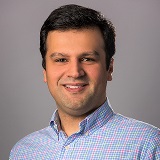
Danyal Butt, PhD, Principal Research Scientist, AbbVie, Inc.

Danyal Butt is a Principal Research Scientist in Biologics Discovery Sciences at AbbVie. He joined AbbVie in 2019 and has been leading and supporting biologics drug discovery projects in Immunology, Oncology, Neuroscience and Cell Therapy. Currently, he leads the In vivo Antibody Discovery and Sequencing Technologies Group. In addition, he co-leads the AbbVie-Harvard Alliance program area for developing antibody therapeutics against emergent pathogens. Dany's scientific training is in immunology focused on B cell biology and antibody responses. He received his PhD at the Garvan Institute in Sydney, Australia.

Yong Cang, PhD, Professor, ShanghaiTech University; Co-Founder & CSO, Degron Therapeutics

Yong Cang is the Co-founder and CSO of Degron Therapeutics. He is a scientific leader in targeted protein degradation, ubiquitin ligase biology, and cancer immunotherapy with 30+ publications in top biomedical journals. Dr. Cang pioneers novel molecular glue degrader discovery strategies, with a focus on screening approach development and mechanistic understanding of interactions between molecular glue drugs, ubiquitin ligases, and neo-substrates. Dr. Cang is a professor and head of the Laboratory of Targeted Protein Degradation in the School of Life Science and Technology of ShanghaiTech University. He previously was an assistant professor in the NCI-designated Cancer Center of Sanford Burnham Prebys Medical Discovery Institute and a professor of Zhejiang University. Dr. Cang consulted for pharmaceutical industry and venture funds. Dr. Cang received a Bachelor of Science degree from Fudan University and a PhD in Molecular Genetics from the Albert Einstein College of Medicine. He completed his postdoctoral training with Professor Stephen Goff at Columbia University and HHMI.

Daniele Carettoni, Scientific Officer, Biological Sciences, Axxam SpA

Daniele Carettoni is Scientific Officer at Axxam, overseeing the internal R&D projects as part of the Scientific Committee, and playing a cross-functional role in supporting business activities, partner projects and fostering technological and scientific innovation across the company. For over two decades he worked as Head of Biochemistry at Axxam, leading the efforts for recombinant expression and development of biochemical and biophysical assays on diverse enzymatic and protein-interaction pharmaceutical targets in support to HTS-based drug discovery campaigns and hit to lead programs. Previously, he was research scientist at Bayer, working at the configuration of uHTS assays, and at GlaxoSmithKline, where he contributed to the characterization and validation of novel anti-infective drug targets. Daniele Carettoni did his post-doctoral training in Italian pharmaceutical companies and received his PhD in Molecular and Cellular Biology from the University of Milan studying DNA-processing enzymes.

Ross Chambers, PhD, Vice President, Antibody Discovery, Integral Molecular, Inc.

Ross Chambers is the Vice President of Antibody Discovery at Integral Molecular. He pioneered the use of DNA immunization for antibody production and developed Integral Molecular’s MPS system for isolating antibodies. Dr. Chambers earned his PhD from the University of Otago, New Zealand, and did post-doctoral studies at UC Davis and Berkeley. Before joining Integral Molecular, he was the Director of R&D at SDIX and directed the discovery of thousands of commercial antibodies.

Abhishek Chatterjee, PhD, Professor, Chemistry, Boston College

Abhishek received his Ph.D. in Chemical Biology from Cornell University in 2009 working on elucidating the elusive molecular mechanism of vitamin B1 biosynthesis in eukaryotes. Then, as a postdoctoral fellow at The Scripps Research Institute, he worked on expanding the scope of the unnatural amino acid mutagenesis technology. Abhishek joined the Department of Chemistry at Boston College in the 2013, where he is currently a Professor. The Chatterjee group is broadly interested in engineering biology through an interdisciplinary approach to develop enabling new technologies for probing complex biological questions, and to create opportunities for developing next-generation biotherapeutics. The research from the Chatterjee group has been recognized by several awards, including Camille Dreyfus Teacher-Scholar Award, and Allen Distinguished Investigator Award.

Prasoon Chaturvedi, PhD, Vice President & Head, DMPK, C4 Therapeutics, Inc.

Prasoon Chaturvedi, Ph.D., currently leads the DMPK efforts in the protein degrader space as Vice President, DMPK, at C4 Therapeutics in Watertown, MA. Over the last two decades, Prasoon has worked with numerous cutting-edge technologies to drive drug development endeavors in multiple therapeutic areas including infectious disease, oncology, hematology, cardiovascular, inflammation, and rare diseases leading to multiple successful IND, CTA, and NDA filings and has made key DMPK contributions for several marketed drugs including NUZYRA and ONPATTRO. Prasoon holds a Ph.D. from IIT, Roorkee (India), and did his postdoctoral training at E.K. Shriver Center of Harvard Medical School, MA.

Charu Chaudhry, PhD, Senior Principal Scientist, Molecular Pharmacology, Janssen Pharmaceuticals, Inc.

Charu Chaudhry is a Senior Principal Scientist and group leader in Discovery Technologies Molecular Pharmacology at Janssen. Her scientific background is in biophysics, biochemistry, and in vitro pharmacology, and her research interests broadly encompass structure-function relationships, the adoption and implementation of innovative technologies, and targeted protein degradation. Her team utilizes multidisciplinary approaches to support preclinical discovery programs across all the therapeutic areas. Charu received her BS in Chemistry from Massachusetts Institute of Technology and her PhD in Molecular Biophysics and Biochemistry from Yale University.

Ross Cheloha, PhD, Investigator, Chemical Biology of Signaling Section, Laboratory of Bioorganic Chemistry, National Institutes of Health

Ross Cheloha is a Stadtman Investigator and principal investigator at the National Institutes of Health in the Laboratory of Bioorganic Chemistry. His lab studies the development of new semi-synthetic tools to target cell surface receptors. He conducted his postdoctoral research at Harvard Medical School and Boston Children's Hospital in the lab of Hidde Ploegh and his PhD in chemistry at the University of Wisconsin in the lab of Samuel Gellman.
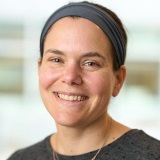
Karen S. Conrad, PhD, Scientific Associate Director, Structural Biology, Takeda

Karen S Conrad is a protein chemist specializing in GPCR research with over a decade of industrial laboratory experience in small molecule drug discovery. She is the Scientific Associate Director of Protein Chemistry for the Structural Biology group at Takeda, leading a group responsible for protein production for stakeholders across the organization. Karen has previously held positions as a Principal Scientist in Physical Biochemistry at Biogen, leading multidisciplinary projects involving construct design, protein purification, and structural characterization, and as a Senior Scientist at Pfizer, where she contributed to the expression, purification and structural characterization of soluble and membrane protein targets. Karen completed postdoctoral research at Cornell University, focusing on light-activated circadian clock proteins in the lab of Brian Crane, and earned a Ph.D. in Inorganic Chemistry from the University of Wisconsin-Madison in the lab of Thomas Brunold, where her thesis explored the transport and utilization of B12. Karen holds a B.A. in Chemistry from Claremont McKenna College. Her expertise spans molecular biology, biophysics, structural biology, spectroscopic and computational analysis.
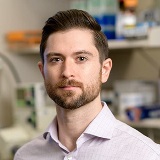
Broderick Corless, PhD, Senior Scientist, DNA Encoded Libraries, Pfizer

I received my BS in Biochemistry from St. Lawrence University and my PhD in Pharmacology from Weill Cornell Medical College. My thesis research was conducted in Derek Tan's lab at Memorial Sloan Kettering Cancer Center (a partnership program with WCMC) where we were developing novel CAR T-Cell therapies that expressed and secreted enzymes which would convert prodrugs into active compounds at the tumor site - enabling a dual modality of immunologic and small molecule therapy. I am currently a senior scientist at Pfizer working in R&D in the DNA Encoded Library (DEL) lab to help drive early hit identification for projects across our research units. I am interested in chemical biology and drug discovery and am looking to expand my impact at Pfizer through use of mass spec to increase the throughput of our pharmacology assays.

Nathan P. Coussens, PhD, Scientific Director, Molecular Pharmacology Laboratory, Frederick National Laboratory for Cancer Research

Nathan P. Coussens, Ph.D., is the director of the Molecular Pharmacology Laboratory at the Frederick National Laboratory for Cancer Research (FNLCR), which is focused on the preclinical development of cancer therapeutics. Previously he was a senior research scientist at the National Center for Advancing Translational Sciences, where he developed biologically and pharmacologically relevant biochemical and cell-based assays to identify and characterize small molecule modulators for a diverse portfolio of projects. Dr. Coussens is a member of the FNLCR Scientific Standards Hub, which strives to increase the reproducibility of biomedical data within the scientific community. He is a member of the SLAS Technology editorial board as well as an associate editor and former editor-in-chief of the National Institutes of Health’s Assay Guidance Manual, a growing online eBook of best practices for preclinical assay development and implementation that has become the go-to resource for translational scientists in industry, academia, and research laboratories worldwide.
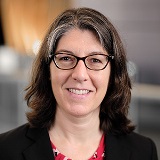
Marsha Crochiere, PhD, Vice President, Translational Medicine & Research, Pyxis Oncology

Dr. Marsha Crochiere is a seasoned biotech leader with more than 10 years of experience focusing on translational medicine to develop therapies that address significant needs in oncology. Currently, Dr. Crochiere serves as Vice President, Translational Medicine & Research at Boston-based biotech Pyxis Oncology. She leads a team of scientists researching the mechanism of action and identification of predictive and pharmacodynamic biomarkers of response to Pyxis Oncology's micvotabart pelidotin (“MICVO,” formerly PYX-201) a first-in-concept antibody-drug conjugate (ADC) that targets EDB+FN, a non-cellular structural component of the tumor extra-cellular matrix. MICVO is currently being tested as a monotherapy and in combination with Merck’s anti-PD-1 therapy, KEYTRUDA® (pembrolizumab) in Phase 1 clinical trials focusing on head and neck squamous cell carcinoma as well as other solid tumor types. Dr. Crochiere obtained her Ph.D. in Cell, Molecular and Development Biology from Tufts Graduate School of Biomedical Sciences.

Olga Danilchanka, PhD, Partner, MRL Ventures Fund

Olga Danilchanka is a Partner at MRL Ventures Fund, the corporate venture arm of Merck. Since joining MRL Ventures Fund in 2018, Olga has focused on preclinical stage investments, championing companies that harness cutting-edge biology to devise therapeutic solutions in areas of significant unmet medical need. Currently, she serves as a Director on the board of Therini Bio and as an Observer on the boards of Axonis Therapeutics, Ambagon Therapeutics, PAQ Therapeutics and Ray Therapeutics. Olga's previous board experiences include Eyebiotech Limited (acquired by Merck & Co., Inc., Rahway, NJ, USA), HotSpot Therapeutics, Lava Therapeutics (NASDAQ: LAVA), and Caraway Therapeutics (acquired by Merck & Co., Inc., Rahway, NJ, USA). Before her work with MRLV, Olga expanded her operational and scientific expertise at both Epiva Biosciences, a Flagship Pioneering newco, and the MRL Cambridge Exploratory Science Center, a subsidiary of Merck & Co., Inc., Rahway, NJ, USA. She holds a PhD from the University of Alabama at Birmingham and completed her postdoctoral training at Harvard Medical School.

Arvin Dar, PhD, Professor, Chemical Biology, Memorial Sloan Kettering Cancer Center

Arvin Dar is a member and professor in the Chemical Biology Program at Memorial Sloan Kettering Cancer Center’s Sloan Kettering Institute, where he is also vice director of the Center for Experimental Therapeutics. Dr. Dar graduated from the University of Western Ontario with a BSc in chemistry, earned his PhD from the University of Toronto, and received postdoctoral training at the University of California, San Francisco. Prior to joining MSK in June of 2023, Dr. Dar led an independent research group at the Icahn School of Medicine at Mount Sinai for approximately 10 years. Dr. Dar’s research is focused on kinase structural biology and small molecule design and synthesis. His laboratory has discovered several leads for therapeutic development, including chemical switches and molecular glues to target genetically defined cancers driven by the RAS and WNT pathways. In addition, Dr. Dar co-founded Nested Therapeutics (nestedtx.com) to advance innovative therapeutics aimed at challenging cancer targets and to increase the number of patients that benefit from precision medicine. Dr. Dar has received numerous awards and honors for his research, including the NIH Director’s New Innovator Award, Damon Runyon-Rachleff Innovation Award, the Pew Charitable Trusts’ Pew-Stewart Scholars for Cancer Research award, Pershing Square Sohn Cancer Research Alliance Award, Junior Faculty Award at Mount Sinai, and the Mark Foundation for Cancer Research ASPIRE Award.

Yunji Davenport, PhD, Director, Drug Discovery, Foghorn Therapeutics

Yunji Davenport is Director, Drug Discovery at Foghorn Therapeutics where she heads up the Gene-to-Structure group, leading protein biochemistry and structural biology efforts for the BAF platform as well as all of Foghorn's early drug discovery programs. Prior to joining Foghorn in 2017 as one of the earliest employees, she was a Jane Coffin Childs Postdoctoral Fellow in the lab of Jon Clardy at Harvard Medical School. Yunji obtained her PhD from Caltech in the lab of Pamela Bjorkman.

Ben J. Davis, PhD, Research Fellow, Biology, Vernalis R&D Ltd.

Dr. Ben Davis is a Research Fellow at Vernalis Research, a biotech company based in Cambridge UK which has been at the forefront of fragment-based approaches since 1998. An NMR spectroscopist and biophysicist by training, his current research focus is the development of biophysics and FBLD methods for challenging therapeutic targets and systems. Dr Davis studied for his PhD in protein folding and molecular interactions with Professor Alan Fersht at Cambridge University, and then studied the interactions of small molecules with proteins and RNA. He has over 20 years’ experience in the drug discovery industry. He has contributed to seven books over the last decade and is an author on more than forty scientific publications. He is a frequent speaker at scientific conferences and has been running FBLD training workshops since 2007.
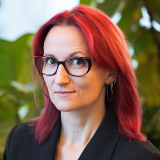
Erin Davis, PhD, CTO, Technology, X Chem Inc

Erin joined X-Chem as their Chief Technology Officer in 2024 with a focus on advancing the company’s strategy of utilizing wet and in silico data generation systems to enhance its position as a drug discovery partner. She oversees the development of a comprehensive discovery platform that integrates DEL, medicinal and computational science, and machine learning, supporting all facets of the pre-clinical discovery process. Previously, Erin served as senior vice president of enterprise informatics at Schrödinger, at the helm of the business, science, and development aspects of its enterprise informatics and modeling platform, LiveDesign. She drove the platform’s explosive growth across the global pharmaceutical industry, supporting an evolution of integrative modeling-based drug discovery. She also founded the discovery informatics team, supporting technology development across Schrödinger’s internal drug discovery programs. Prior to joining Schrödinger, Erin held several technology leadership positions supporting better drug discovery, including head of US consulting for Chemaxon and US scientific relations manager for the Cambridge Crystallographic Data Centre. Before moving to industry, Erin spent several years in academia at the medicinal and computational chemistry interface, wishing for better tools while researching neurochemical and antimicrobial drug design. She earned a Ph.D. from the University of Montana in 2006 with a focus on the computational design of CNS compounds.

Gianni De Fabritiis, PhD, Professor, Computational Biochemistry & Biophysics Lab, Universitat Pompeu Fabra; Founder, Acellera

As the CEO of Acellera Therapeutics, I lead a team of researchers and engineers dedicated to accelerating the transition to rational, computerized drug engineering via simulations and artificial intelligence. With over 20 years of experience in computational science, I have a strong background in mathematics, machine learning, quantum chemistry, and computer simulations. I am also an ICREA Research Professor at the Institució Catalana de Recerca i Estudis Avançats, where I head a computational science laboratory. Additionally, I am an Associate Professor at Universitat Pompeu Fabra. I love computing in all its forms, from computer simulations to computational intelligence.

Chris De Savi, PhD, CSO Partner, Curie Bio

As Senior Vice President, Head of Drug Discovery at Kymera Therapeutics, Chris was responsible for medicinal and computational chemistry, lead discovery (biochemistry, biophysics, structural biology), preclinical development (DMPK and Toxicology), and proteomics. His team contributed to all drug discovery phases at Kymera from project inception through to clinical candidate discovery and beyond. Prior to joining Kymera, Chris was head of chemistry at Blueprint Medicines, a precision medicine company specialized in kinase drug discovery and development. Chris has deep experience in leading discovery research groups and project teams in both global pharmaceutical and biotech companies. He has directly contributed to the invention of 9 clinical candidate drugs for oncology and inflammation disease - most recently BLU-945, an EGFR T790M/C797S triple mutant inhibitor for the treatment of lung cancer, AZD4573, a selective CDK9 inhibitor for the treatment of haematological malignancies and AZD9496, an oral, selective estrogen receptor degrader for the treatment of ER+ breast cancer. He co-discovered Barasertib (AZD1152), a selective Inhibitor of Aurora B kinase for the treatment of AML. He is an author of over 50 peer-reviewed publications and patents in the fields of medicinal chemistry and drug discovery and a PhD qualified chemist who has previously held academic positions at Queens’ College Cambridge and University of Cambridge, Cambridge, UK.

Bradley DeMarco, PhD, Associate Director, Biochemistry & Biophysics, Monte Rosa Therapeutics

Scientist leading the biochemistry and biophysics screening group at Monte Rosa Therapeutics. Former drug hunter at NIBR in Oncology drug discovery.

Rakesh Dixit, PhD, DABT, CEO & President, Bionavigen Oncology, LLC and CSO, TMAB Therapeutics, Regio Biosciences

Rakesh Dixit is an accomplished executive, inventor, and scientist with over 35 years of success with top biotechnology and pharmaceutical companies, including Merck, Johnson & Johnson, and Medimmune - AstraZeneca. Currently, he is President and CSO of Regio Biosciences and Bionavigen, LLC. He is a Board Member of Regio Biosciences and a key member of multiple scientific advisory boards. Rakesh is also a chief adviser and consultant for more than 20 companies worldwide. His biopharmaceutical peers selected Rakesh as one of the 100 Most Inspiring People in the Pharmaceutical Industry by PharmaVOICE in 2015. Rakesh received the Most Prestigious Award of Long-Standing Contribution to ADCs by World ADC (Hanson-Wade), 2020. From 2006 to 2019, Rakesh was a Global Vice President of the Biologics R&D at Medimmune - AstraZeneca. Rakesh has unique expertise in developing biologics (e.g., monoclonal antibodies, bispecific biologics, antibody-drug conjugates, fusion proteins, peptides, gene and cell therapies, etc.) and small-molecule biopharmaceuticals. His areas of expertise include discovery, early and late preclinical development, safety assessment, DMPK, and translational sciences. Dr. Dixit conducted extensive graduate and post-graduate training in Pharmacology/Toxicology-Biochemistry with both Indian and USA institutions (e.g., Case Western Reserve University, Medical College of Ohio, University of Nebraska) and is a Diplomate and Board Certified in Toxicology from the American Board of Toxicology, Inc. since 1992.

Abhishek Dogra, Director, Medicinal Chemistry & Induced Proximity, A Alpha Bio Inc.

Abhishek is currently leading cross-functional efforts at A-Alpha Bio to discover molecular glues for novel ligase-target pairs. Prior to A-Alpha, he has 15 years of industry experience in pharma (Novartis) and biotech (Foghorn, Galenea) spanning early-stage hit identification through late-stage lead optimization. He has held project leadership roles for multiple oncology targets requiring a degradation approach and experience with different modalities in other therapeutic areas. He obtained his BS in biochemistry and MS in organic chemistry from Baylor University. Abhishek is passionate about navigating difficult problems in drug discovery that can significantly impact human health.

Katherine Donovan, PhD, Scientist, Laboratory of Dr. Eric Fischer, Cancer Biology, Dana-Farber Cancer Institute/Harvard Medical School

Katherine Donovan is a Scientist in the Fischer Lab where she works on the development of molecular-glues and PROTAC molecules for targeted protein degradation. She completed her PhD training in protein biochemistry and structural biology at the University of Canterbury, New Zealand. After joining the Fischer Lab as a postdoc she developed an interest in proteomics and now leads the proteomics-based screening of novel small molecule degraders in the Fischer Lab.

Matthew T. Eddy, PhD, Assistant Professor, Chemistry, University of Florida, Gainesville

Matthew Eddy received his PhD in physical chemistry from the Massachusetts Institute of Technology in the laboratory of Professor Robert Griffin. During his PhD, Dr. Eddy developed new approaches for using nuclear magnetic resonance (NMR) in the solid state to determine structures of membrane proteins in cellular-like environments. Following his PhD, Dr. Eddy joined the laboratories of Professors Raymond Stevens and Kurt Wüthrich at The Scripps Research Institute as an American Cancer Society Postdoctoral Fellow, applying an integrative structural biology approach to study human G protein-coupled receptors (GPCRs) and focusing on applications of nuclear magnetic resonance to improve our understanding of GPCR allosteric functions. Dr. Eddy is currently an assistant professor in the Department of Chemistry at the University of Florida and affiliated faculty of the National High Magnetic Field Laboratory. His group continues to study human GPCRs to understand the role of the cellular environment in regulating GPCR dynamics, structure, and function.

Aled M. Edwards, PhD, Structural Genomics Consortium and Professor, Medical Biophysics, University of Toronto

Aled is the founder and Chief Executive of the Structural Genomics Consortium.

Sean Ekins, PhD, Founder & CEO, Collaborations Pharmaceuticals, Inc.

Sean is founder and CEO of Collaborations Pharmaceuticals, Inc., which is focused on using machine learning approaches for rare and neglected disease drug discovery. Sean graduated from the University of Aberdeen; receiving his MSc, PhD, in clinical pharmacology and DSc in science. He was a postdoctoral fellow at Lilly Research Laboratories, before working as a senior scientist at Pfizer and then Eli Lilly. He went on to join several startup companies at increasingly senior levels. Since 2005, he has been awarded over 30 NIH and DOD grants (STTR/SBIR grants, R21, UH2 and R01) as well as performing as a consultant on many others (raising tens of millions of dollars). He has authored or co-authored >375 peer reviewed papers, book chapters, edited 6 books on different aspects of drug discovery research and using computational approaches. He recently authored a book on "Winning Grants." He has a passion for finding new collaborators and developing new treatments for neglected and rare diseases as well as advancing new technologies for drug discovery.

Nicholas F. Endres, PhD, Senior Scientist, Biochemical & Cellular Pharmacology, Genentech, Inc.

Dr. Nick Endres is a Senior Scientist in the Department of Biochemical and Cellular Pharmacology at Genentech. Dr. Endres receive a PhD in Biophysics at UCSF, where he used single molecule fluorescence techniques to determine the motility mechanisms of kinesin family motor proteins. He then went on to do a postdoc in the Department of Molecular and Cellular Biology at UC Berkeley, where he combined in vitro lipid biochemistry, quantitative cellular fluorescent microscopy and molecular dynamics to elucidate a role for the plasma membrane in inhibiting spurious activation of the EGF receptor. Since joining Genentech in 2014, he has been the lead assay designer on several small molecule drug discovery projects including kRas and Pi3K, and serves as a co-leader of the Genentech degrader team. His group specializes in using biochemical and cellular assays to understand the pharmacological mechanism of early leads to inform lead discovery and development strategy.
.tmb-0.png)
Daniel A. Erlanson, PhD, Chief Innovation Officer, Frontier Medicines Corporation
.tmb-0.png)
Dr. Daniel A. Erlanson is the Chief Innovation Officer for Frontier Medicines, which is using covalent fragments, machine learning, and chemoproteomics to target proteins often thought undruggable. Prior to Frontier he co-founded Carmot Therapeutics, where he contributed to two clinical-stage molecules. Before Carmot, Dr. Erlanson spent a decade developing fragment-based discovery technologies and leading medicinal chemistry projects at Sunesis Pharmaceuticals. Dr. Erlanson was an NIH postdoctoral fellow with James A. Wells at Genentech, earned his PhD in chemistry from Harvard University in the laboratory of Gregory L. Verdine, and his BA in chemistry from Carleton College. He has co-edited two books on fragment-based drug discovery and is an inventor on more than a dozen issued patents and an author of more than forty scientific publications. He also runs a blog devoted to fragment-based drug discovery, Practical Fragments (http://practicalfragments.blogspot.com/).
- Emerging Cancer Targets for Multispecifics, ADCs, and Biologics
- AI/ML-Enabled Drug Discovery - Part 2
- Covalent Chemistries & Induced Proximity
- SC7: Fragment-Based Drug Design: Advancing Tools and Technologies
- GPCR-Based Drug Discovery
- Targeting Transcription Factors & Regulators
- Lead Generation Strategies
- Small Molecules for Cancer Targets
- Degraders & Molecular Glues - Part 2

Dominic Esposito, PhD, Director, Protein Sciences, Frederick National Laboratory

Dr. Esposito is currently the Director of the Protein Expression Laboratory (PEL) and Project Lead for the RAS Reagents Core at the Frederick National Laboratory for Cancer Research in Frederick, Maryland. The 38 employees in the PEL clone, express, and purify proteins from a variety of host organisms in support of the NCI RAS Initiative and for investigators at the National Institutes of Health. In addition, the PEL invents and develops novel technologies for improving protein expression and production, focused heavily on baculovirus expression technology and combinatorial cloning. Prior to his role as director, Dr. Esposito led the Clone Optimization Group in the PEL for nine years and was responsible for the generation of over 15,000 expression clones, 400 new expression vectors, and several technological innovations in protein expression. Dr. Esposito received his B.A. in Chemistry at La Salle University in Philadelphia, and his Ph.D. in Biochemistry in the laboratory of Dr. John Scocca at the Johns Hopkins University Bloomberg School where he studied bacteriophage site-specific recombination. Dr. Esposito then worked as a postdoctoral fellow in the laboratory of Dr. Robert Craigie at the NIDDK, where he studied the protein-DNA interactions involved in the HIV integration reaction. Prior to joining the FNL in 2001, Dr. Esposito worked for three years as a Staff Scientist in the Protein Engineering group at Life Technologies, where he helped to develop the Gateway recombinational cloning system. Dr. Esposito has published over 100 peer-reviewed manuscripts in the fields of protein expression and DNA recombination.
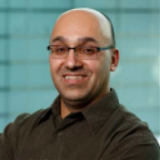
Ghotas Evindar, PhD, Co-Founder & President, DEL Source; Former DEL Platform Senior Manager and Group Leader, GSK

Dr. Evindar is co-founder and president of DEL Source Inc and a sought-after drug discovery advisor and consultant throughout the biotech and pharma industry. Born and raised in the Kurdish mountains and educated in Canada, he earned his bachelor’s and master’s degrees from the University of Waterloo, in biochemistry and bio-organic chemistry, respectively, and a PhD degree in organic chemistry from the University of Toronto. He initiated his industrial career as a medicinal chemist at Vertex Pharmaceuticals (Boston) with focus on structure-based drug design. Dr. Evindar led the DNA Encoded Library (DEL) platform discovery group at GSK and was a senior site manager and group leader at GSK Boston for 15 years. Prior to DEL Source, Dr. Evindar was an executive team member and head of drug discovery at both 1859 Inc and Exo Therapeutics. He is an expert in drug discovery and one of the pioneers of DEL platform, working in the original team enabling the platform from its early days at Praecis Pharmaceuticals. Over the last 20 years, Dr. Evindar led a number of medicinal chemistry programs and been involved with advancing a dozen molecules from early discovery to development stage. He has been a tireless advocate of DEL platform, serving as an advisor throughout the industry and as an educational leader through presentations, roundtables, and DEL courses to support DEL implementation and its application in drug discovery. He has authored well over 50 publications and patents in the fields of screening and drug discovery, including seminal articles on DNA-Encoded Library (DEL) technology (LinkedIn).

Saudat Fadeyi, PhD, MBA, Head, Business Development & Strategy, Samyang Biopharm USA, Inc.

Dr. Saudat Fadeyi is a science-driven business leader in the Pharma/Biotech industry, with an over-15-year career in clinical research, global drug development, portfolio strategy, and business development. She currently leads Business Development & Partnering at Ovid Therapeutics, centered around innovative therapies and platform technologies that offer new modalities for treating rare neurological diseases and patients with high unmet need. She holds a PhD in Cancer Biology and an MBA in Pharmaceutical Management, and completed her post-doctoral training at the National Institutes of Health in immuno-oncology and vaccine development. Dr. Fadeyi spent the early part of her career in translational and clinical research, and has a background in community-based participatory research and health disparities from her time spent as a clinical scientist within academia. She's been involved in driving early- to late-stage drug development programs across multiple therapeutic areas, including several marketed products, and has worked within privately funded research organizations and public companies, including Schering-Plough (now Merck), Pfizer, and Sage Therapeutics. Dr. Fadeyi is an advocate for increasing clinical trial diversity and is also a board member of S.H.I.N.E. (STEM Hub for Industry Networking and Exchange), a non-profit organization actively bridging opportunities and access for the next wave of underrepresented minority STEM professionals in the Biotech & Pharma industry, through mentorship and meaningful engagement.

David Farina Jr., PhD, Senior Research Scientist, Machine Learning, Iambic Therapeutics Inc.

No bio available.

Eric Fischer, PhD, Associate Professor, Biological Chemistry and Molecular Pharmacology, Harvard Medical School; Director Center for Protein Degradation, Dana-Farber Cancer Institute

Eric Fischer, PhD, is Assistant Professor of Biological Chemistry and Molecular Pharmacology at Harvard Medical School and a Principal Investigator in the Department of Cancer Biology at Dana-Farber Cancer Institute. His research focuses on understanding the complex mechanisms that underlie signaling through the ubiquitin proteasome system, and function and regulation of multi-component ubiquitin ligases and their role in disease. Leveraging the in depth understanding for therapeutic intervention through novel small molecule modalities is a second focus of his research, and has significantly contributed to our understanding of small molecule mediated protein degradation. Eric has been recognized for his pioneering work on the structure of cereblon and the mechanism of action of thalidomide, which continues to guide the development of IMiDs and related future drugs. His work has been instrumental for the growing field of small molecule protein degradation therapeutics. Eric also co-directs the newly formed Center for Protein Degradation, a unique collaboration between Dana-Farber and Deerfield Management. Eric completed his undergraduate training at the Universities of Hamburg (Germany) and Basel (Switzerland). His doctoral training was at the Friedrich Miescher Institute for Biomedical Research and the University of Basel in the laboratory of Dr. Nicholas Thomä, culminating in a PhD in structural biology conferred summa cum laude. As a part of his graduate research, Eric also spent time in the laboratory of Prof. Kaoru Sugasawa at Kobe University (Kobe, Japan) and with the Novartis Institutes for Biomedical Research. Eric was recruited to Dana-Farber and Harvard in 2015 to establish his research group. Eric has received numerous honors recognizing his research achievements and promise, including a 2015 Novartis Institutes for Biomedical Research Team Award winner, a 2018 Damon Runyon-Rachleff Innovation Award from the Damon Runyon Cancer Research Foundation, and an Emerging Leader Award from the Mark Foundation for Cancer Research.
.tmb-0.jpg)
Timothy L. Foley, PhD, Senior Principal Scientist & Lab Head, DNA Encoded Library Selection & Pharmacology, Pfizer Global R&D Groton Labs
.tmb-0.jpg)
Tim first obtained his BSc in cell biology and biochemistry and then a MSc in organic chemistry at the University of California - San Diego (UCSD). Still at UCSD, he pursued inhibitors of bacterial natural product biosynthesis and received his Ph.D. in chemistry in 2010. He conducted his post-doctoral studies at the National Center for Advancing Translational Sciences (NCATS) at the NIH from 2010 to 2014. In this position, he further developed his knowledge of enzymology and molecular pharmacology in the context of high throughput screening. Tim joined Pfizer in February 2014 to support the Pfizer Centers for Therapeutic Innovation portfolio and the Serine Hydrolase Gene Family platform. Tim’s lab guides pharmacology assay design and execution for projects to support hit discovery and compound optimization into clinical candidates. Since 2017, he has been leading the organizational effort to develop hit identification capabilities with DNA-encoded library technologies.
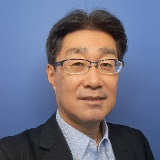
Shigeru Furukubo, PhD, Vice President, Chemistry, FIMECS Inc.

Dr. Shigeru Furukubo is a Vice President of Chemistry at FIMECS, Inc. Since he joined the company in 2022, he has been leading the implementation of the platform “RaPPIDSTM” and promoting collaborative research programs with a pharmaceutical company. He was formerly an Associate Director at Mitsubishi Tanabe Pharma Corporation and directed more than 30 research programs in multiple therapeutic fields as a medicinal chemist.
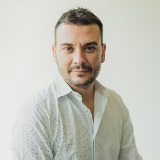
Carles Galdeano, PhD, Co-Founder Oniria Therapeutics; Associate Professor, University of Barcelona

Dr Carles Galdeano is currently an Associate Professor at the University of Barcelona. He obtained his PhD in medicinal chemistry at the University of Barcelona. After that, he spent three years post-doc in Alessio Ciulli’s lab (first at the University of Cambridge and later at the University of Dundee) where they developed the first potent VHL ligands described together. His postdoctoral discoveries represented a breakthrough in the PROTACS field. In 2015, he returned to the University of Barcelona to work in collaboration with Prof Barril until 2019, when he started his independent research group. Dr Galdeano is also co-founder of Oniria Therapeutics. His lab is interested in expanding the druggable proteome since most proteins are still considered undruggable for conventional drug discovery approaches.

Katie Galloway, PhD, W. M. Keck Career Development Professor, Biomedical Engineering and Chemical Engineering, Massachusetts Institute of Technology

Katie Galloway is the W. M. Keck Career Development Professor in Biomedical Engineering and Chemical Engineering at Massachusetts Institute of Technology (MIT). Her research focuses on elucidating the fundamental principles of integrating synthetic circuitry to drive cellular behaviors. Her team leverages synthetic biology to transform how we understand cellular transitions and engineer cellular therapies. Galloway earned a PhD and an MS in Chemical Engineering from the California Institute of Technology (Caltech), and a BS in Chemical Engineering from University of California at Berkeley. She completed her postdoctoral work at the University of Southern California. Her research has been featured in Science, Cell Stem Cell, Cell Systems, and Development. She has won multiple fellowships and awards including the NSF CAREER, Cellular and Molecular Bioengineering Rising Star, Princeton’s CBE Saville Lecture Award, NIH Maximizing Investigators’ Research Award, the NIH F32, and Caltech’s Everhart Award.

Shanthi Ganesh, PhD, Senior Scientific Director, Global Nucleic Acid Therapies, Novo Nordisk

Shanthi is the Senior Scientific Director at Novo Nordisk. with over 20 years of industry experience in nucleic acid therapeutics, drug delivery, cancer drug discovery, and gene therapy. At Dicerna/ Novo Nordisk, she was responsible for bringing the first two GalXC-Plus conjugates to clinical development for the treatment of cancer patients. Prior to that, she spent more than 10 years at NIBR and two other gene therapy companies developing RNAi therapeutics and oncolytic viruses for cancer treatment. Throughout her career, she has published extensively in the areas of RNAi, cancer therapeutics and gene therapy and holds several patents and awards for her work in this field. She has also been a member of AACR for several years and has attended and presented her work at several international conferences. She earned her PhD in RNAi therapeutics for cancer applications at Northeastern University.
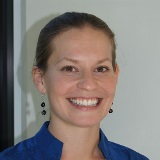
Emily Garcia Sega, PhD, Senior Scientist, Medicinal Chemistry, Arrakis Therapeutics

Emily Garcia Sega obtained her PhD in organic chemistry from the University of California, San Diego. Following a postdoctoral appointment at Ithaca College, Emily began her career as an Assistant Professor of Chemistry and Biochemistry at Bridgewater State University with research focused on utilizing small molecules to target RNA as well as Quorum Sensing. Emily later moved to Western New England University, where she earned tenure and promotion to Associate Professor. After 10 years in academia, Emily decided on a career pivot and has been enjoying her new career in the biotechnology industry as a Medicinal Chemist at Arrakis Therapeutics since 2021.

Ashwini Ghogare, PhD, Executive Director and Head of AI & Automation for Drug Discovery, MilliporeSigma

Ashwini Ghogare is the Head of AI and Automation for Drug Discovery at MilliporeSigma; an intrapreneur for the corporate venture focused on AI-driven drug discovery and automation in the Life Science and Healthcare sectors. With a strong background in transformational drug discovery technologies, Ashwini has significant experience developing and launching Generative AI platforms, incubating new biotech businesses, and commercializing enterprise solutions. Previously, Ashwini spearheaded strategic initiatives to discover groundbreaking AI technologies for drug discovery, culminating in the successful launch of the AI-powered drug design solution, AIDDISON™. Additionally, she played a key role in the global commercialization of Synthia™, MilliporeSigma’s leading retrosynthesis software. Ashwini holds a Ph.D. in organic chemistry with a specialization in photobiology, where her research on photochemical drug delivery systems contributed to the founding of SingletO2 Therapeutics LLC.

Sujatha Gopalakrishnan, Director, Research Fellow, Head of HTS & Molecular Characterization, AbbVie

Sujatha Gopalakrishnan is leading the centralized Molecular Screening and Characterization group at Abbvie. Her team supports various therapeutic areas in assay development, screening, and advancing compounds including elucidation of the SAR and mechanistic studies for early-stage drug discovery efforts. She joined Abbott/Abbvie in 1995, and since then has held positions of increasing responsibility leading highly-productive scientific teams. With early Discovery, she has been advancing a range of assay platforms/technologies for target-based and phenotypic screens that impacted Abbvie pipeline. Sujatha is an author of over 45 peer-reviewed manuscripts as well as a co-inventor on two patents.
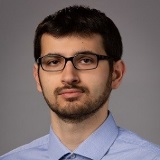
Loukas I Goulatis, PhD, Senior Scientist, Biotherapeutics, Boehringer Ingelheim Pharmaceuticals Inc.

Loukas Goulatis is a Principal Scientist at Boehringer Ingelheim leading the in vitro display group within the Biotherapeutics Discovery department. His team utilizes tools such as yeast and phage display, bioinformatics, and NGS to enable antibody discovery and affinity maturation campaigns. In this role, he has spearheaded numerous successful antibody discovery projects for different MOAs and against diverse target classes. Loukas received his PhD from the University of Wisconsin-Madison with research focused on use of antibodies for drug delivery across the blood-brain barrier.

Isabella Graef, MD, CEO, Shenandoah Therapeutics

Dr. Graef is the Founding CEO of Shenandoah Therapeutics (since 2022) and an accomplished drug developer with a proven track record of bringing novel therapies to patients. She earned her medical degree from the University of Vienna, then moved to the United States as a Fulbright Fellow to pursue advanced training in Immunology at UC Berkeley. From 2007 to 2020, Dr. Graef served on the faculty at Stanford University, where she focused on protein folding diseases and pioneered a new method of inhibiting pathogenic protein-protein interactions-a strategy later adopted by multiple biotech companies. Drawing on her deep scientific expertise, Dr. Graef, alongside Dr. Alhamadsheh, invented AG10 (Acoramidis) for the treatment of transthyretin (TTR) cardiomyopathy. In 2013, she co-founded Eidos Therapeutics to propel AG10 into clinical trials, serving as a voting board member until mid-2018 and a board observer until 2021. Eidos completed its IPO in 2018, reached a $5 billion valuation by January 2021, and was ultimately acquired by BridgeBio. Today, AG10 (also known as ATTRuby™ or Beyonttra™) is approved by the FDA, EMA, and the Japanese Ministry of Health. Dr. Graef continues to harness her scientific and entrepreneurial drive at Shenandoah Therapeutics, developing breakthrough treatments for patients in need. .

Linda Griffith, PhD, Professor, Biological Engineering & Teaching Innovation, Massachusetts Institute of Technology

Professor Linda G. Griffith received a Bachelor's Degree from Georgia Tech and a PhD degree from the University of California at Berkeley, both in chemical engineering. Griffith’s is a member of the National Academy of Engineering and the recipient of a MacArthur Foundation Fellowship, the Popular Science Brilliant 10 Award, NSF Presidential Young Investigator Award, the MIT Class of 1960 Teaching Innovation Award, Radcliffe Fellow and several awards from professional societies.
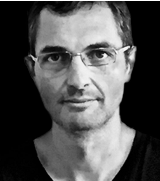
Victor Guallar, PhD, Professor, Barcelona Supercomputing Center and Nostrum Biodiscovery

Currently an ICREA Professor at the Barcelona Supercomputing Center (BSC), Dr. Guallar completed his PhD in theoretical Chemistry between the University Autonomous of Barcelona (Spain) and UC Berkeley (USA) in January 2000. After three years as a postdoctoral researcher at Columbia University (New York, USA), he was appointed assistant professor at Washington University School of Medicine (St Louis, USA), before moving his group to BSC in 2006. His laboratory (EAPM) has grown considerably since, keeping a productive international character, and developing important contributions in computational biophysics, such as the protein-ligand modeling software PELE, and biochemistry, including computational algorithms for enzyme engineering and the introduction of the first PluriZyme (enzyme with multiple actives sites).As a BSC researcher, Prof. Guallar has been awarded several important research projects, including the award of a prestigious advanced ERC grant (the youngest researcher to receive it in Spain). His research has produced over 140 papers in international journals and directed 16 PhD thesis. In addition to algorithms development (and their application), the group has recently placed importance in adding interdisciplinary fields to our research, such as visualization techniques, data mining and software optimization through machine learning algorithms. Prof. Guallar is also founder of the first spin off from BSC, Nostrum Biodiscovery, a young biotech enterprise created in 2016 which aims to collaborate with pharmaceutical and biotech companies dedicated to the development of drugs and molecules of biotechnological interest. The company currently works with clients in North America, Europe, Asia, and Oceania.

Steve Gygi, PhD, Professor, Department of Cell Biology, Harvard Medical School

Dr. Gygi received his Ph.D. from the University of Utah in Pharmacology and Toxicology in 1995 specializing in small molecule mass spectrometry. He then completed a postdoctoral fellowship with Ruedi Aebersold at the University of Washington where he studied large molecule mass spectrometry in a new field termed proteomics. He started his own lab in 2000 at Harvard Medical School in the Department of Cell Biology. Currently, his lab is working to develop technologies around sample multiplexing. A 16plex TMT reagent set is now available. This allows for 16 treatments to be combined into a single experiment including replicates, dose response, time series, and rescue conditions. In this single-experiment format, proteomics becomes a powerful biological assay.

Markus Haeberlein, PhD, Executive VP Discovery Science, Parabilis Medicines

Markus is a seasoned R&D executive with three decades of experience in Drug Discovery and Early Development across a broad range of disease areas. He currently serves as Executive Vice President of Discovery Science at Parabilis Medicines, which includes driving the advancement of Helicon degraders, a novel therapeutic modality. Prior to this role, he was Senior Vice President and Head of Research at Alkermes, where he played a central role in building a high-performing research organization distinguished by its focus on superior molecular design for both small molecules and biologics. Among the key achievements during his tenure was the discovery of ALKS 2680, a potent Orexin 2 Receptor agonist developed for the treatment of narcolepsy-targeting a receptor long considered challenging to drug. Before Alkermes, Markus was Chief Scientific Officer at Proteostasis Therapeutics, a biotech focused on diseases caused by improper protein degradation, folding and trafficking. Prior to that, Markus spent 15 years at AstraZeneca and held roles of increasing scope and responsibility, including leading AstraZeneca’s Global Chemistry Network where he was responsible for the company’s global chemistry strategy and implementation. A key focus of his strategy was the Predictive Chemistry platform utilizing state-of-the-art computational chemistry methods to improve the design of drug molecules. Markus holds a M.Sc. in Physical Chemistry, Biochemistry, Organic Chemistry and a Ph.D. in Physical Chemistry/Computational Chemistry from the Royal Institute of Technology, Sweden.
.tmb-0.jpg)
Ghaith Hamza, Associate Principal Scientist, Discovery Sciences, AstraZeneca
.tmb-0.jpg)
Ghaith is a biochemist specializing in preclinical drug discovery at AstraZeneca. His mission is to advance human health through innovative research.
.tmb-0.jpg)
Gwenn Hansen, PhD, CSO, Nurix Therapeutics, Inc.
.tmb-0.jpg)
Gwenn is Chief Scientific Officer at Nurix Therapeutics, a company focused on discovering and developing next-generation targeted protein modulation therapies. At Nurix Gwenn has focused on building a robust discovery pipeline using DNA encoded library technology, leveraging it across a range of target classes including E3 ubiquitin ligases. Prior to joining Nurix, Gwenn was Associate Professor in the Center for Drug Discovery at Baylor College of Medicine and Senior Director of Discovery Technology at Lexicon Pharmaceuticals.
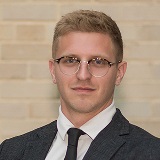
Stefan Harry, PhD, ACS Postdoctoral Fellow, Harvard University and Massachusetts General Hospital

Stefan was raised in the crossroads of rural America - Parker City, Indiana. He earned his B.S. in chemistry from Ball State University and pursued his doctoral studies in synthetic and physical organic chemistry at Johns Hopkins University under the mentorship of Prof. Thomas Lectka. There, he focused on pioneering radical-based fluorination reactions and devised innovative methods for functionalizing complex natural products. As an American Cancer Society postdoctoral fellow under Prof. Liron Bar-Peled and Prof. Brian Liau at MGH and Harvard University, he is dedicated to developing novel chemical proteomics techniques and small molecule modalities aimed at targeting critical cancer drivers that have long been considered 'undruggable.'

James Hickman, PhD, Professor, NanoScience Technology Center, University of Central Florida

James J. Hickman is the Founding Director of the NanoScience Technology Center and a Professor of Nanoscience Technology, Chemistry, Biomolecular Science, Material Science and Electrical Engineering at UCF and has a Ph.D. from MIT in Chemistry. While in industry, he established one of the first bioelectronics labs in the country that focused on cell-based sensors and their integration with electronic devices and MEMS devices. He has been constructing multi-organ human-on-a-chip or body-on-a-chip systems for toxicology and efficacy with up to six organs and has demonstrated long-term (>28 days) evaluation of drugs and compounds. He has also pioneered the development of functional platforms for CNS and PNS neurodegenerative disease. He is the founder and Chief Scientist of Hesperos, that is focusing on cell-based systems for drug discovery and toxicity. He has over 170 publications, 20 book chapters and over 250 presentations, in addition he has over 40 pending and issued patents. He is a Fellow of AIMBE (2004), AVS (2007) and the National Academy of Inventors (2020). He is currently the President Elect, International Microphysiological Systems Society (IMPSS).
.tmb-0.jpg)
Ken Hsu, PhD, Stephen F. and Fay Evans Martin Endowed Associate Professor, Department of Chemistry, The University of Texas at Austin
.tmb-0.jpg)
Prof. Hsu earned his PhD in Chemistry and Biochemistry from The University of Texas at Austin and completed his postdoctoral training at The Scripps Research Institute. The Hsu Laboratory focuses on the discovery of bioactive molecules. A central theme of the group is the development of covalent probes and inhibitors for investigating protein and lipid activity. Research in the group is multidisciplinary and uses a combination of organic synthesis, bioanalytical chemistry, and bioorganic chemistry. Current efforts include identifying new reactive chemistry, quantifying ligandability of proteins on a proteomic scale, and deciphering structure and function of membrane signals in living systems. Ultimately, the goal is to develop new molecules to enable chemical biology and therapeutic discovery. Prof. Hsu’s research program has been recognized by several awards including the highly competitive NIH K99/R00 Pathway to Independence Award, Department of Defense CDMRP Career Development Award, Melanoma Research Alliance Young Investigator Award, the NSF CAREER Award, the Emerging Leader Award from The Mark Foundation for Cancer Research, and CPRIT Recruitment of Rising Stars Award.
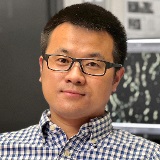
Ying S Hu, PhD, Assistant Professor, Chemistry and Biomedical Engineering, University of Illinois Cancer Center

Dr. Ying Samuel Hu is an Assistant Professor of Chemistry and Biomedical Engineering (Affiliate) at the University of Illinois Chicago (UIC). He received his doctoral degree in Biomedical Engineering from Rice University. He then received postdoctoral training from the California Institute of Technology and Salk Institute for Biological Studies, developing superresolution imaging techniques with applications to human embryonic stem cells and immune T cells. Dr. Hu established his immune imaging research group at UIC in 2018. His group develops advanced fluorescent labeling and imaging techniques that surpass the resolution limits of conventional optical microscopy. He applies these tools to study communication within and between immune cells at the nanoscale and single-molecule levels, generating insights that drive the development of novel therapeutic strategies to harness the human immune system.

Catherine Hutchings, PhD, Independent Consultant

Catherine has spent over 28 years acquiring significant depth of experience in antibody drug discovery and platform applications, working for cutting-edge biotech and pharma companies, such as Cambridge Antibody Technology and Heptares Therapeutics. She has been engaged as an independent consultant since 2015, providing scientific and strategic consultancy to pharma, biotech and investors, with a particular focus on GPCRs, ion channels, transporters, immuno-oncology, platform positioning and target/product evaluation. Catherine graduated with BSc Hons in Genetics and Cell Biology from University of Manchester, UK, and a PhD in Biochemistry and Applied Molecular Biology from UMIST, UK.
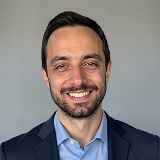
Luca Iacovino, PhD, Senior Scientist, Biophysics, FoRx Therapeutics

I am a Senior Scientist in Biochemistry and Biophysics at FoRx Therapeutics, where for the past five years I have been involved as a team leader focused on identifying small-molecule inhibitors targeting DNA replication-stress targets. I have contributed to discovery projects from early hit identification through candidate nomination, applying a range of biochemical, biophysical, and structural approaches to advance our therapeutic pipeline. I earned my PhD in Biochemistry and Molecular Biology from the University of Pavia and hold an MS in Medicinal Chemistry from the University of Rome “La Sapienza.”

Farren Isaacs, PhD, Professor, Department of Molecular & Cellular & Developmental Biology, Yale University

No bio available.

Miroslaw Janowski, MD, Tenured Professor, Diagnostic Radiology, University of Maryland Baltimore

I am a neurosurgeon by training, and I specialize in precision drug delivery to the brain through image guidance and advanced neuroimaging. After completing postdoctoral fellowship and spending several years as a faculty member at Johns Hopkins, I joined University of Maryland, Baltimore and served as a co-director of Program in Image Guided Neurointerventions (PIGN). I have authored over 110 peer reviewed papers, made several patented inventions and I am a continuously NIH supported researcher since 2013. The high quality of my journal reviews has been recognized by society supported journals: STROKE through Outstanding Reviewer Award and NEUROCRITICAL CARE through Top Reviewer Award. I am also a steering committee member of Children Brain Tumor Drug Delivery Consortium (CBTDDC) and co-founder of Society for Image Guided Neurointerventions (SIGN), which organized two successful conferences. I have also launched two start-ups in the field of image guided neurointerventions: IntraART and Ti-com.

Michael Krogh Jensen, PhD, CEO, Biomia

Dr. Michael Krogh Jensen is a co-founder and CEO of Biomia (www.biomia.com). Before founding Biomia in 2023, he held a position as Principal Investigator at the Center for Biosustainability, Technical University of Denmark (DTU), which he joined in 2013. He obtained his PhD in molecular biology from University of Copenhagen, Denmark, in 2007, and obtained independent funding for his post-doctoral research at University of Copenhagen, Max-Planck Institute in Cologne, Germany, and Stanford University, USA, from 2008-2012. From 2013-2023, in his Principal Investigator role at DTU, he managed a 10-15 membered research group devoted to international and public-private research projects in development of synthetic biology tools and AI for cell factory development, with special attention to engineering and application of high-throughput screening technologies, methods for advanced genome engineering, and biomanufacturing of bioactive natural products. He is an author of >80 peer-reviewed papers with >6,500 citations (h-index 39), 5 book chapters, as well as a co-inventor of 4 patents.
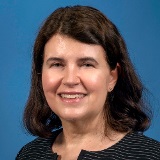
Diane M. Joseph-McCarthy, PhD, Professor of the Practice, Biomedical Engineering, Boston University

Diane Joseph-McCarthy is the Executive Director of the Bioengineering Technology & Entrepreneurship Center and Professor of the Practice in Biomedical Engineering at Boston University. Prior to that, she was a life science executive with over 20 years of drug discovery, development, and leadership experience. She was SVP of Discovery & Early Development at EnBiotix, a bioengineering company focused on respiratory and rare disease. She was an Associate Director at AstraZeneca, where she led a global team in infectious disease. At Wyeth, she held positions of increasing responsibility. Diane received her PhD from MIT and was a postdoctoral fellow at Harvard University/Harvard Medical School. She is a fellow of the American Institute for Medical and Biological Engineering.
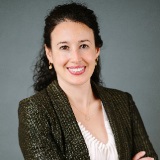
Cigall Kadoch, PhD, Associate Professor, Pediatric Oncology, Dana-Farber Cancer Institute/Harvard Medical School; Scientific Founder, Foghorn Therapeutics

Cigall Kadoch, Ph.D., is an academic leader and entrepreneur in the biomedical sciences. She is an Associate Professor of Pediatric Oncology at the Dana-Farber Cancer Institute, Institute Member and Epigenomics Program Co-Director at the Broad Institute, and a recently-appointed Investigator of the Howard Hughes Medical Institute (HHMI). Dr. Kadoch established her independent laboratory in 2014, at age 28, one of the youngest scientists ever appointed to the Harvard Medical School faculty, immediately following completion of her Ph.D. studies at Stanford University. She is a leading expert in chromatin and gene regulation and is internationally recognized for her groundbreaking studies in these areas. Specifically, her laboratory studies the structure and function of nuclear protein complexes called chromatin remodeling complexes that govern DNA architecture and gene expression, perturbations in which are implicated in over 50% of human cancers including several in which disruption to these entities represents the driving, causative event. Dr. Kadoch is also the Scientific Founder of Foghorn Therapeutics (NASDAQ: FHTX), a company advancing a new class of medicines based on her seminal work.

Petrina Kamya, PhD, Global Head of AI Platforms & Vice President, Insilico Medicine; President, Insilico Medicine Canada

Petrina Kamya, PhD, is the Head of AI Platforms and President of Insilico Medicine, Canada an end-to-end artificial intelligence-driven drug discovery company. Before joining Insilico, Dr. Kamya spent eight years in various roles at Chemical Computing Group that involved scientific and business-related aspects of preclinical drug discovery. In addition to establishing the corporate strategy for the sales and business development of molecular modeling software for academia, she also played an active role as an application scientist working on real-world discovery projects and finally in a senior role in strategy and business development for pharma and biotech companies. Following her time at CCG, Petrina moved to Certara as a Market Access Manager, where she learned first-hand the challenges of getting drugs to market. Petrina has been with Insilico Medicine since August 2020. She holds a PhD in Chemistry (specializing in computational chemistry) from Concordia University.
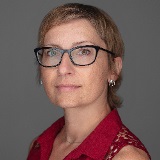
Aleksandra Karolak, PhD, Assistant Professor, Department of Machine Learning, Moffitt Cancer Center & Research Institute

Aleksandra Karolak is the Assistant Member in the Machine Learning Department at the Moffitt Cancer Center, where she leads the Molecular AI Lab. She moved to the USA with an MSc in Metal-organic Chemistry from Adam Mickiewicz University in Posen, Poland (1995-2000). She earned her PhD in Computational and Biophysical Chemistry from the University of South Florida in Tampa, FL, United States (2010-2015). Her research focused on the application and development of computational algorithms to study conformational changes in DNA and proteins. After completing her PhD, Dr. Karolak underwent her first postdoctoral training in the Integrated Mathematical Oncology Department at Moffitt Cancer Center also in Tampa (2015-2018) working on development of mathematical models for i) imaging and therapeutic agents delivery to solid tumors and ii) organoids growth. Her second postdoctoral training took place at the Institute for Research in Biomedicine in Barcelona, Spain, during which she held a prestigious Marie Curie - ProBIST fellowship. She worked on development of models for mutational signatures predictions using DNA shape as well as predictions of interactomes. Before re-joining Moffitt as a faculty member, she worked at the Population Sciences and Quantitative Medicine Departments at City of Hope Cancer Center as an Assistant Research Professor. Her research included applications of information theory to immuno-oncology and development of quantitative systems pharmacology models for patients undergoing transplant treatment. Dr. Karolak is a data scientist with a background in computational chemistry, mathematical oncology, and machine learning. Her scientific interests revolve around elucidating tumor molecular heterogeneity, understanding DNA and protein mutations, treatment optimization, and drug discovery. Exploiting cross-disciplinary research, her team aims to apply and develop more accurate machine learning and other computational models to challenge existing hypotheses and propose new, more effective precision medicine approaches that can be translated into the clinic.

Jamie Kasuboski, PhD, Partner, Luma Group

Jamie is a Vice President with OMX Ventures. Prior to OMX, Jamie developed deep experience in early-stage biotech investing and company creation while working on the investment team at RA Capital. In that role, he served on the board of Enara Bio, Avilar Therapeutics, and Hyku Therapeutics. Before joining RA, he was a Director at Boehringer Ingelheim Venture Fund and served as a Board Director of both Tilos Therapeutics (acquired by Merck & Co.) and Rewind Therapeutics.

Brendan Kelly, PhD, Principal, Lightstone Ventures

Brendan is a Principal at Lightstone Ventures focused on the biotech sector. Brendan's background is in Medicinal Chemistry and Computational Design of Small Molecule Drugs, as well as Life Sciences Strategy Consulting and New Product Planning. Prior to Lightstone, Brendan was Director of New Product Planning at Q32 Bio, where he helped to define value propositions and set commercial strategy for the company’s lead assets and discovery platform. Brendan was previously a Life Sciences Strategy Consultant at L.E.K. Consulting, working on projects across therapeutic areas, modalities and technologies, including pipeline optimization, go-to-market strategies, BD and M&A due diligence. Brendan’s research at Stanford Computer Science, University of Toronto and Trinity College Dublin focused on computational methods of small molecule drug discovery for primarily oncology and neuroscience targets. Brendan was also part of the founding team and led R&D at A2A Pharmaceuticals, discovering a molecule that continues in Phase 2 development today. With his background in research and strategy, Brendan is keenly Interested in the intersection of innovative technologies, drug discovery platforms, company formation and strategy, particularly in the pursuit of new therapeutics for patients in need.

Terrence P. Kenakin, PhD, Professor, Pharmacology, University of North Carolina at Chapel Hill

Beginning his career as a synthetic chemist, Terry Kenakin received a PhD in Pharmacology at the University of Alberta in Canada. After a postdoctoral fellowship at University College London, UK, he joined Burroughs-Wellcome as an associate scientist for 7 years. From there, he continued working in drug discovery for 25 years first at Glaxo, Inc., then Glaxo Wellcome, and finally as a Director at GlaxoSmithKline Research and Development Laboratories at Research Triangle Park, North Carolina, USA. Dr. Kenakin is now a professor in the Department of Pharmacology, University of North Carolina School of Medicine, Chapel Hill. Currently he is engaged in studies aimed at the optimal design of drug activity assays systems, the discovery and testing of allosteric molecules for therapeutic application, and the quantitative modeling of drug effects. In addition, he is Director of the Pharmacology graduate courses at the UNC School of Medicine. He is a member of numerous editorial boards, as well as Editor-in-Chief of the Journal of Receptors and Signal Transduction. He has authored numerous articles and has written 10 books on pharmacology.

Akbar H Khan, PhD, Associate Director, Oncology R&D, Research and Early Development, AstraZeneca

Dr. Akbar H. Khan is the Associate Director of Medicinal Chemistry at AstraZeneca. He leads projects developing ADC payloads and linkers for various indications. With more than eight years in pharmaceutical R&D, Dr. Khan has experience across small molecules, oligonucleotides, lipids, and antibody-drug conjugates. At AstraZeneca, he manages both internal and external R&D teams. Before AstraZeneca, Dr. Khan worked at Wave Life Sciences, Organix Inc., and Adesis. He earned his Ph.D. in Organic Chemistry from Iowa State University, focusing on method development and synthesis of bioactive natural products. His work combines scientific knowledge with practical leadership to advance drug development projects.

Douglas Kitchen, Research Fellow Computer-Aided Drug Discovery, Discovery Services, Curia

Doug obtained his BS in chemistry from Eastern Nazarene College and a PhD in Chemistry from Princeton University. Doug conducted postdoctoral research with Ron Levy at Rutgers University from 1987 to 1992. He began his industrial research career with Lederle Labs where he was coinventor for two marketed drugs from Pfizer. Doug moved to Albany Molecular Research, Inc (AMRI), now named Curia, in 1997. He has been leading computational chemistry and cheminformatics efforts since then. This research group serves in Albany, Buffalo, NY and Hyderabad, India. The group is responsible for collaborative drug discovery research with external clients including chemical library design, medicinal chemistry using structure-based design, and advanced simulation methods. Doug is an author on more than 40 publications and co-inventor on multiple patents.

Angela Koehler, PhD, Associate Professor, Biological Engineering, Massachusetts Institute of Technology

Angela Koehler is an Associate Professor in the Department of Biological Engineering at MIT and an Associate Director of the David H. Koch Institute for Integrative Cancer Research at MIT. She is also an Institute Member of the Broad Institute and a Founding Member of the MIT Center for Precision Cancer Medicine. Her research group aims to discover and develop functional small-molecule probes of targets emerging from patient-based genomics, including targets deemed recalcitrant to small molecule drug discovery efforts, such as transcription factors, RNA-binding proteins, or cytokines. Selected probes may be developed into imaging agents, diagnostic tools, or therapeutic leads. Angela received her B.A. in Biochemistry and Molecular Biology from Reed College in 1997 and her Ph.D. in Chemistry from Harvard University in 2003. Upon graduation, she became an Institute Fellow in the Chemical Biology Program at the Broad Institute and a Group Leader for the NCI Initiative for Chemical Genetics. Awards include being named a Genome Technology Young Investigator and a Broad Institute Merkin Fellow as well as the Novartis Lectureship in Chemistry, the Ono Pharma Breakthrough Science Award, the AACR-Bayer Innovation and Discovery Award and the MIT Junior Bose Award for Excellence in Teaching. Angela serves as a consultant or scientific advisory board member to several pharmaceutical or biotechnology companies and has founded three biotechnology companies, Ligon Discovery, Kronos Bio, and 76Bio.

Jan Kubicek, CSO & Co Founder, Cube Biotech GmbH

Dr. Jan Kubicek holds a PhD in biology from the University of Duesseldorf/Helmholtz Research Center Juelich. He continued his work on the crystallization of membrane proteins as a post-doctoral fellow in Juelich. In 2006, he joined Qiagen where he was responsible for product development of recombinant protein expression, purification, and crystallization products. In cooperation with Prof. Joerg Labahn (now Centre for Structural Systems Biology (CSSB) at the DESY in Hamburg), he developed the Controlled in Meso Phase Crystallization (CIMP) method for the crystallization of membrane proteins.
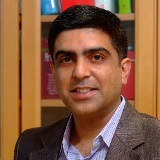
Krishna Kumar, PhD, Professor, Chemistry, Tufts University

Krishna Kumar is Robinson Professor of Chemistry and Professor of Biomedical Engineering at Tufts University. He is a Member of the Cancer Center at the Tufts Medical Center in Boston. He received his PhD from Brown University in 1996 and after postdoctoral studies at the Scripps Research Institute joined Tufts in 1998. Kumar’s contributions to science, and in particular chemistry and medicine, have been recognized widely. He was named a DuPont Young Professor, recognized as one of the top 35 young innovators in the world by MIT Technology Review magazine (TR35), awarded a Global Indus Technovator award from MIT-IBC, is a recipient of the National Science Foundation CAREER award, Technology award from the Massachusetts Technology Transfer Center, Excellence in Chemical Sciences Award from the Indian Society for Chemistry and Biology and was elected a Fellow of the American Association of the Advancement of Science (AAAS) and a Fellow of the Royal Society of Chemistry (UK). His contributions to science range from the origin of life, peptide and protein design, medicinal chemistry, biophysics and cell and molecular biology. In particular, he is credited with developing therapeutics for a wide range of infectious and metabolic diseases.

Madhu Lal Nag, PhD, CSO, InSphero

Dr. Nag is a scientific and executive leader with a profound expertise in developing preclinical MPS (MicroPhysiological Systems) and 3D models, targeted therapies, biomarker discovery, and the application of cutting-edge technologies across various domains including toxicology, safety pharmacology, oncology, functional genomics, and stem cell research. She currently serves as the Chief Scientific Officer at InSphero AG. Madhu holds a Doctor of Philosophy (PhD) in Molecular and Cellular Oncology from George Washington University and a master’s degree in Bioscience Business from Keck Graduate Institute. Her primary goal is to unify the academic and translational facets of pioneering science in oncology, metabolic diseases, and investigative toxicology. Leveraging insights from contemporary therapeutic regimens, Madhu creatively translates state-of-the-art research to promptly address patient requirements.
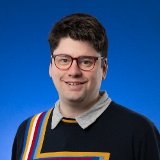
Ian Lamb, PhD, Postdoctoral Research Fellow, Biophysics, Eli Lilly

Prior to joining Eli Lilly & Co. as a postdoctoral research scientist in 2023, Ian completed his PhD in Philadelphia at the Drexel University College of Medicine under the direction of Dr. Akhil Vaidya. Here, he studied the molecular physiology of malaria parasites. Specifically, he investigated the Plasmodium falciparum mitochondrial proteome for functional analysis of conserved essential proteins. During the past two and a half years at Lilly, Ian has been using mass spectrometry methods to identify phosphorylated residues in the glucagon family of GPCRs following agonism.
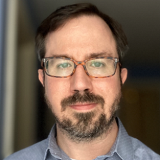
Joshua Lees, PhD, Principal Scientist, Cryo EM, Pfizer

Dr. Joshua Lees is a Principal Scientist and Structural Biology Lab Leader at Pfizer based in Groton, CT. Originally trained as a crystallographer studying membrane trafficking proteins during his Ph.D. and early postdoc, he transitioned during his postdoc to using cryo-EM to tackle the structures of large and flexible phosphoinositide kinase complexes. Since joining Pfizer’s cryo-EM group in early 2020, he has used cryo-EM to drive mechanistic studies and structure-based drug design for many important targets, including GPCRs, across a broad range of therapeutic areas and modalities, becoming the leader of a structural biology team in 2023. When not at work, he enjoys woodworking and hiking on trails around New England.
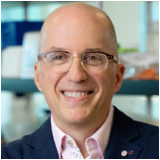
Phil Leighton, Fellow, Animal Genetics, OmniAb

Phil Leighton is a Fellow at OmniAb. He joined the OmniAb team in 2017 following the acquisition of Crystal Bioscience. Dr. Leighton has been responsible for the development and validation of lines of transgenic chickens used for the discovery of human antibodies including OmniChicken®, which has been used for antibody discovery programs by pharmaceutical industry partners since 2016. More recently, he helped develop the OmniClic® line, which is used for discovery of antibodies with a common light chain for bispecific antibody development. He has authored many scientific publications and holds numerous US patents. Dr. Leighton earning is BS and MSC degrees from Stanford University and received his PhD in Molecular Biology from Princeton University, followed by post-doctoral studies at the University of California, San Francisco.

Nicholas Levinson, PhD, Associate Professor, Department of Pharmacology, University of Minnesota Twin Cities

Dr. Levinson did his PhD in Molecular and Cell Biology at UC Berkeley and postdoctoral training at Stanford in biophysical spectroscopy. The Levinson Lab uses biophysical and structural techniques to study allosteric regulation and drug targeting in protein kinases.
.tmb-0.jpg)
Sherry Ke Li, PhD, Principal Scientist, Biochemical & Cellular Pharmacology, Genentech, Inc.
.tmb-0.jpg)
Sherry Ke Li received her PhD degree in Analytical Chemistry at Washington University with a focus on developing mass spectrometry (MS)-based structural proteomics approaches for biophysical characterization of proteins. She is now a Scientist at Genentech interested in covalent drug discovery using primarily MS for screening, hit validation, and mechanistic characterization.

Jing Li, PhD, Principal Scientist, Genentech

Jing Li is a Principal Scientist in Biochemical and Cellular Pharmacology department at Genentech. Jing received his Ph.D. in biochemistry from the Technical University in Munich, where he studied the molecular mechanism of heat shock protein Hsp90. After his Ph.D, Jing conducted his postdoctoral research to study proteasome and protein degradation at Caltech and developed the first-in-class inhibitor targeting Rpn11/PSMD14, an essential deubiquitinase located on the 19S proteasome. Currently, he leads a research group at Genentech to develop new technologies that facilitate multi-specific drug discovery. His research interests include targeted protein degradation on the cell surface, setting up complex in vitro systems that mimic physiological reality, and exploring innovative methods for drug delivery.
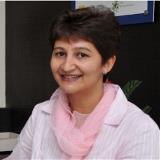
Nimita Limaye, PhD, Research Vice President, Life Sciences R&D Strategy and Technology, IDC

Dr. Nimita Limaye leads the Life Sciences R&D Strategy and Technology program at IDC, providing research-based advisory and consulting services, as well as market analysis. She is passionate about the interplay of AI, data, technology and analytics in transforming drug development. She is an executive business leader with over two decades of life sciences leadership experience working across the pharma / CRO / life sciences-tech consulting industry. She has served as a mentor for start-ups on the Mass Bio Digital Health initiative, has served as the past chair of SCDM and is actively associated with the DIA. She was the recipient of the DIA Inspire award in 2024. She has chaired several conferences, led industry roundtables, given keynote talks, led panel discussions and has authored over 40 publications / white papers, several focused on topics such as the role of AI/GenAI in drug discovery and development, decentralized clinical trials, 'patient-centricity', predictive analytics and RBQM.
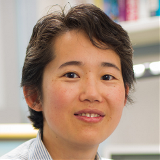
Xiaole Shirley Liu, PhD, CEO, GV20 Therapeutics

Dr. X. Shirley Liu graduated summa cum laude from Smith College double majoring in Biochemistry and Computer Science in 1997, and received PhD in Biomedical Informatics and PhD minor in Computer Science from Stanford University in 2002. She is now Professor at the Department of Biostatistics and Computational Biology at the Dana-Farber Cancer Institute and Harvard School of Public Health. She is the Director of the Center of Functional Cancer Epigenetics at Dana-Farber Cancer Institute, and an associate member of the Broad Institute. Her research focuses on computational cancer epigenetics, and developing algorithms for big cancer data integration and mining.

Shenping Liu, PhD, Associate Research Fellow, Exploratory Medicinal Sciences, Pfizer Global R&D Groton Labs

Shenping Liu is a veteran in drug discovery in pharmaceutical companies. He uses structural biology, biophysics and other molecular sciences tools to hunt medicines that may cure infectious diseases, cancers, and treat chronicle diseases such as diabetes, obesity, and NASH/MASH.

Feng Liu, PhD, Executive Director, R&D, Regor Pharmaceuticals Inc.

Dr. Liu joined Regor in 2018 and has since been a key driver in advancing innovative treatments within the metabolic disease space. She has successfully led cross-functional teams, driving compounds from candidate nomination to IND filing and through Phase I/II clinical trials. Before joining Regor, Dr. Liu worked at Astria, focusing on metabolic diseases such as T2DM and MASH, as well as rare diseases including DMD and cystic fibrosis. Her earlier career at Pfizer/Wyeth provided valuable experience in drug development, where she identified and developed novel therapeutic approaches for psychiatric disorders such as schizophrenia and depression, as well as neurodegenerative diseases like Parkinson's and Alzheimer's. Dr. Liu earned her Ph.D. in Biochemistry from Temple University (Fox Chase Cancer Center) and completed her postdoctoral training under Nobel Laureate Paul Greengard at The Rockefeller University.

Haixia Liu, PhD, Senior Principal Scientist, Medicinal Chemistry, Roche

Dr. Haixia Liu is the Senior Principal Scientist and Section Head of Medicinal Chemistry at the China Innovation Center of Roche (CICoR). Since joining Roche in 2011, Dr. Liu has gained extensive drug discovery experience, contributing to projects across various stages, including target assessment, lead identification, lead optimization, and clinical candidate selection. Her expertise spans multiple therapeutic areas, including immunology, oncology, infectious diseases, and cardiovascular and metabolic diseases. Dr. Liu has a proven track record of successfully delivering multiple clinical candidates for both immunology and oncology projects. Dr. Liu's research experience is diverse, having advanced both First-in-Class (FIC) and Best-in-Class (BIC) projects. She has demonstrated expertise in targeting novel and challenging targets through various screening approaches for hit identification. Additionally, she is highly skilled in optimizing beyond-rule-of-5 (bRo5) molecules with high molecular weight and high lipophilicity to achieve oral bioavailability and balanced ADME properties.
.tmb-0.jpg)
Robin Loeving, PhD, CSO, Salipro Biotech AB
.tmb-0.jpg)
Robin Löving is the Chief Scientific Officer (CSO) at Salipro Biotech. Robin have more than 15 years’ experience working with therapeutically interesting membrane proteins. He did his PhD with a focus on membrane proteins and antigen design at the Karolinska Institute in Stockholm, Sweden. After being involved in other startup companies, he joined Salipro Biotech as CSO five years ago. Robin’s work has resulted into numerous granted patents and peer-reviewed publications.

Andreas Luttens, PhD, Postdoctoral Fellow, James Collins' Laboratory, Medical Engineering, Massachusetts Institute of Technology

Andreas obtained his Master's Degree in Chemistry from Ghent University, Belgium. For his PhD in Molecular Life Sciences, he moved to Uppsala Sweden, where he developed tools for large-scale virtual screening under the supervision of Jens Carlsson. He was awarded a Postdoctoral Fellowship from the Wallenberg Foundation to develop deep learning models that can design new antibiotics in the lab of James Collins at MIT. Andreas recently became Assistant Professor at the Karolinska Institutet in Sweden, where he will join as a data-driven life science Fellow in epidemiology and biology of infection.

Yingli Y. Ma, PhD, CTO, Platform Technology, Structure Therapeutics

Dr. Ma has 15+ years of technology and drug discovery experience in pharma-biotech settings and is currently the Chief Technology Officer of Structure Therapeutics. Prior to joining Structure, Dr. Ma was site head and General Manager of Amgen Biopharmaceutical R&D Center (Shanghai), responsible for Amgen’s structural biology globally and China research platforms, supporting all preclinical drug discovery projects including small molecule and biologics in multiple disease areas. Prior to Amgen, she was at GlaxoSmithKline, supporting multiple preclinical drug discovery programs across a variety of target classes for target validation, protein characterization, biophysics and structural biology studies in the fields of neuroscience, regenerative medicine and mitochondria biology. Dr. Ma completed postdoc training under the tutelage of the late Nobel Laureate Dr. Gunter Blobel at the Rockefeller University and obtained her Ph.D from University of Pennsylvania.
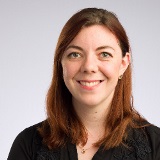
Abbie Macmillan-Jones, Senior Scientist, Discovery Sciences, AstraZeneca

Abbie Macmillan-Jones is a senior scientist working in Discovery Sciences at AstraZeneca. She supports the discovery and development of novel therapeutics for Oncology and has a breadth of experience across emerging modalities including scientific expertise in PROTACs, molecular glues and degrader-antibody conjugates.

Martin Main, CSO, Medicines Discovery Catapult

An ion channel electrophysiologist by training, Martin has spent over 30 years working in the pharmaceutical industry in organisations including Merck, GlaxoSmithKline and AstraZeneca. An accomplished scientist with over 35 publications and 2 patents and a broad range of experience ranging from target validation and reagent generation, through assay development and mechanism-of-action studies, Martin brings a breadth of experience to his role as Chief Scientific Officer at Medicines Discovery Catapult (MDC). After gaining his PhD in Cardiac Physiology from the University of London, Martin joined the University of Leeds as a Postdoctoral Scientist before beginning a 25-year stint in large pharma. Starting his career with Merck and GlaxoSmithKline, Martin then held several leadership roles at AstraZeneca, most recently as Director of Discovery Biology from 2011 to 2018. Martin sits on the Scientific Advisory Board for the University of Nottingham Biodiscovery Institute and is a member of the Astbury Centre Industry Advisory Board. He has previously held roles on the ELRIG General Committee and SLAS Editorial Board. Martin joined MDC in 2018 as Head of Molecular Technologies, taking on the role of Chief Scientist in 2022. In his current role as Chief Scientific Officer at MDC, Martin is accountable for the development and delivery of MDC’s science strategy, with oversight of all laboratory activities to ensure MDC continues to deliver upon our vision of reshaping drug discovery for patient benefit.

Susruta Majumdar, PhD, Professor, Clinical Pharmacology, Washington University School of Medicine

Sush Majumdar is a Professor of Medicinal Chemistry and Pharmacology in the Center for Clinical Pharmacology at Washington University. He has PhD from University of Florida College of Pharmacy, Gainesville, FL, and was a Research Fellow under Late Gavril W Pasternak in Neuropharmacology at Memorial Sloan Kettering Cancer Center, NY, NY. His lab focusses on synthesis of chemical probes to interrogate opioid signaling and function with the aim of designing functionally selective opiates.
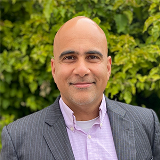
Sushant Malhotra, Senior Vice President, Drug Discovery

Dr. Sushant Malhotra is a distinguished medicinal chemist and drug discovery expert with over 21 years of experience in the pharmaceutical and biotech industries. He specializes in developing breakthrough therapies for patients, with expertise in non-covalent and covalent drug discovery, induced proximity (molecular glues, PROTACs, andTCIPs), and CNS drug discovery. He also has CMC experience from his time as a process chemist at Genentech.Dr.Malhotra has contributed to the invention and development of multiple clinical candidates across Phase 1-3 trials and holds 19 patents and 29 publications. He earned his Ph.D. in Organic Chemistry from Stanford University under ProfessorBarry M. Trost and his B.A. in Chemistry from Grinnell College. His academic foundation paved the way for leadership roles at renowned organizations such asGenentech, Eli Lilly, Frontier Medicines, and Lyterian Therapeutics. He currently serves as Senior Vice President of Drug Discovery at ShenandoahTherapeutics.Dr.Malhotra's career is marked by significant contributions to oncology, neuroscience, and immunology drug discovery, advancing eight molecules to clinical trials. He is a sought-after speaker and mentor, actively contributing to the scientific community through seminars, collaborations, and scientific advisory responsibilities. Driven by a passion for innovation, Dr. Malhotra is dedicated to advancing the field of medicinal chemistry and improving patient outcomes.

Joseph AL Mancini, PhD, VP Research, Research, adMare Bioinnovations

Joseph Mancini, PhD is a McGill trained biochemist with over 30 years of drug discovery experience. He started his career at Merck Research Labs where he was for 20 years and developed 2 drugs for osteoarthritis and filed over 6 INDs. He then moved to Vertex Pharmaceuticals for 8 years, working on rare diseases and has 2 compounds in clinical trials for kidney diseases. Presently, Joseph is Vice President of Research at adMare Bioinnovations, where in the last 5 years he and his team have created 5 biotech start-ups.

Mihir Mandal, PhD, Principal Scientist, Medicinal Chemistry, Merck

Mihir Mandal, PhD, is a passionate and accomplished drug hunter with a strong record for solving complex medicinal chemistry puzzles. He currently leads multiple FBLD projects with novel mechanisms of action. He is a core team member of the FBLD department at Merck and is responsible for devising and implementing strategies for rapid progress of the hits in the FBLD portfolio. Prior to his current role, he was involved in lead identification and optimization that led to multiple clinical candidates. During his industrial career that started at Schering Plough and continued at Merck upon merger, he impacted all the projects spanning from CNS, CVD, antibacterial, and antiviral utilizing structure-based drug design, in silico design and high-throughput experimentation. Mihir earned his PhD in synthetic organic and fluorine chemistry from University of Southern California with Professor Surya Prakash and George Olah and was an US Army post-doctoral fellow at Memorial Sloan Kettering Cancer Center with Professor Sam Danishefsky. He received his MSc. in chemistry from Indian Institute of Technology. He is an inventor on 28 issued US patents and a co-author of more than 31 publications.
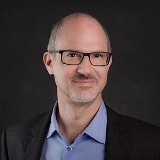
Hank Mansbach, MD, CMO, 89bio, Inc.

As the Chief Medical Officer at 89bio for the past 6 years, Hank Mansbach MD has led the development of pegozafermin from entry into the clinic to 3 ongoing phase 3 studies in MASH and severe hypertriglyceridemia. Prior to joining 89bio, he held leadership roles in clinical development at several small and midsized biotech companies. In addition, at Medivation and Ultragenyx, he was head of medical affairs responsible for building the department from scratch to support each company’s transition from development stage to commercial stage. He began his industry career more than 25 years ago at GSK. He received his MD from Duke University School of Medicine and was a staff neurologist at Henry Ford Hospital before joining the industry.

Abigail Mariga, PhD, Senior Principal Scientist, Neuroscience Discovery Biology, Bristol Myers Squibb Co.

Abigail is a Senior Principal Scientist and Group Leader at Bristol Myers Squibb. She leads an interdisciplinary team focused on using advanced technology platforms to drive CNS target and drug discovery. She earned her Ph.D. from New York University, where she investigated the role of neurotrophins in aging and neurodegeneration. Her previous experiences include supporting CNS programs in early discovery and Hit-to-Lead ID using iPSC-based disease models at Pfizer, AstraZeneca and Biogen.
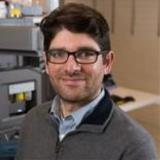
Brent Martin, PhD, Vice President, Chemical Biology, Odyssey Therapeutics

Brent Martin received his Ph.D. in Pharmacology at the University of California in San Diego developing new chemical strategies for correlated fluorescence and electron microscopy. He then carried out postdoctoral studies at the Scripps Research Institute developing new strategies for activity-based profiling, high-throughput screening, and chemical proteomics. As faculty member at the University of Michigan in Ann Arbor, he continued expanding the scope of activity-based profiling methods, while also establishing new bioconjugation reactions to detect and profile protein lipidation, redox modifications, and cysteine occupancy. Brent is the recipient of the NCI Howard Temin K99/R00 award in Cancer Research, the NIH Director’s New Innovator Award, and the NIGMS MIRA Established Investigator Award. He then moved to industry to lead the Chemical Biology at Janssen and was Vice President and Head of Chemical Biology at Scorpion Therapeutics.
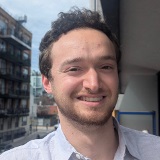
Lucas Mastromatteo, Investigator, Data Analyst, GSK

Lucas Mastromatteo is a Data Scientist working on encoded library technologies at GSK. At GSK, Lucas uses bioinformatics, statistics, and machine learning techniques to drive analysis of DNA encoded library experiments. Lucas graduated from Brown University with a degree in applied mathematics and biology. In his free time, Lucas enjoys cooking, skiing, and playing music with his friends.

Megan L. Matthews, PhD, Assistant Professor, Chemistry, University of Pennsylvania

Megan received her BA in Chemistry from Miami University and her PhD from Penn State University under Marty Bollinger and Carsten Krebs. Her PhD work led to an understanding for how iron- and 2-oxoglutarate dependent oxygenases suppress hydroxylation to allow for halogenation and other outcomes important in natural product biosynthesis. Upon graduation, she performed postdoctoral studies at Scripps Research in the chemical biology laboratory of Ben Cravatt as a Helen Hay Whitney Fellow. Matthews investigated the prevalence of undiscovered protein-bound electrophiles and the (dys)functions that the unknown electrophiles impart, uncovering evidence for their involvement in cancer and diseases of the central nervous system. Her program is tracking down these and a host of other leads to novel disease biology and therapeutics.

Ralph Mazitschek, PhD, Assistant Professor, Harvard Medical School; Co-Director of the Chemical Biology Platform, Center for Systems Biology, Massachusetts General Hospital

Dr. Mazitschek is an Assistant Professor at Harvard Medical School and Co-Director of the Chemical Biology Platform at the Center for Systems Biology at Massachusetts General Hospital (MGH). Dr. Mazitschek is also Assistant Professor in the Department of Immunology and Infectious Diseases at the Harvard T.H. Chan School of Public Health, and Associate Member of The Broad Institute of Harvard and MIT.Dr. Mazitschek graduated from the University of Leipzig in 2002 with a PhD in Organic Chemistry. He continued his research at the Institute of Chemistry and Cell Biology (ICCB) at Harvard Medical School first as postdoc and later as Institute Fellow, from which he joined the Chemical Biology Program at the newly founded Broad Institute of Harvard and MIT. In 2008 he joined the faculty of the Center for Systems Biology at the Massachusetts General Hospital to continue his independent research.

Robert D. Mazzola, PhD, Director & Principal Scientist, Chemical Research, Merck & Co.

No bio available.
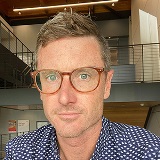
Aaron McGrath, PhD, Senior Scientist, Structural Biology, Takeda, San Diego

Dr. McGrath received a B.Sc. (Hons I) and a PhD from the University of Sydney where his research focused on the structural characterization of human copper amine oxidases. As a postdoctoral fellow, he studied the structural basis of interprotein electron transfer at the Centenary Institute before joining the University of California, San Diego as an NHMRC CJ Martin Postdoctoral Research Fellow. At UCSD, Dr. McGrath focused on the structural characterization of membrane proteins involved in multidrug resistance as well as transporters and channels in plants that confer desirable agronomic traits. Following this, he joined Illumina tasked with implementing characterization and analytical tools company wide. In early 2020, Dr. McGrath joined the structural biology group at Takeda Pharmaceuticals where he is currently a Senior Scientist.

Zachariah McLean, PhD, Instructor in Neurology, Center for Genomic Medicine, Massachusetts General Hospital

Dr Zach McLean earned a PhD in Biological Sciences from University of Auckland. He is currently an Instructor in Neurology in the Center for Genomic Medicine at Massachusetts General Hospital, Harvard Medical School, and the Broad Institute. He works in the lab of Professor James Gusella where his research focuses on in vitro modelling for genetic modifiers of Huntington’s Disease.
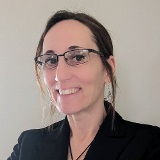
Gaelle Mercenne, PhD, Head, Biology, Talus Bio

Gaëlle Mercenne, PhD, is Head of Biology at Talus Bio, where she leads drug discovery efforts targeting previously undruggable transcriptional regulators using the TF-Scan proteomics platform. With a background in molecular biology and virology, her career spans academia and biotech, including roles at Recursion Pharmaceuticals and Sumitomo Pharma America, where she integrated AI-driven discovery with translational biology. Her work focuses on oncology and rare diseases, advancing novel therapeutics from target identification to clinical candidate nomination.

Samy O. Meroueh, PhD, Professor, Biochemistry; Member, Cancer Center Drug Discovery Program, University of Illinois Urbana-Champaign

I received a PhD from the Department of Chemistry at Wayne State University in the laboratory of William Hase. There, I explored and developed methods to model intermolecular forces that drive molecular recognition and ensuing chemical reactions. As a postdoc, I joined the bioorganic laboratory of Dr. Shahriar Mobashery first at Wayne State University and then at the University of Notre Dame. I worked on understanding the mechanism by which ß-lactamases hydrolyze ß-lactam antibiotics. I was also involved in the development of mechanism-based (covalent) small-molecule inhibitors of matrix metalloproteinases, cathepsins, and ß-lactamases. In my lab at Indiana University, we develop small molecules to modulate the function of proteins involved in promoting tumor growth and metastasis. We are currently developing small-molecule modulators of protein interactions of Ras-like and Rho GTPases, the TEAD-Yap transcription factor complex, and the urokinase receptor uPAR. We investigate compounds and their targets in breast, pancreatic, lung and brain cancer cells and animal models. Some of these small molecules are used to probe their targets in spinal cord and traumatic brain injury as well as neurodegenerative diseases through collaborations. In addition to my funding from the National Institutes of Health, I am a recipient of a Research Scholar Award from the American Cancer Society. I am a member of the Department of Veterans Affairs, Simon Comprehensive Cancer Center, and the Stark Neurosciences Institute.
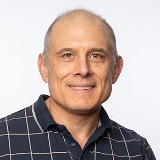
Jeff A. Messer, Director, Analytics, Encoded Libraries Technology, GlaxoSmithKline

MS of Biochemistry from the University of New Hampshire. 20+ years with a foot in the lab and a foot on the carpet doing computation work in support of HTS, Biomarkers and encoded libraries. Currently at GSK in Cambridge, MA where he leads the Biophysics and Analytics groups in support of GSK’s Encoded Library Technology.
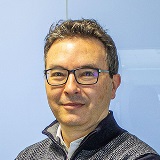
Jordi Mestres, PhD, Founder & CSO, Chemotargets

Jordi Mestres studied chemistry at the Autonomous University of Barcelona (Spain) and obtained a PhD in computational chemistry from the University of Girona (Spain) in 1995. After a postdoctoral stay at Pharmacia & Upjohn, in Kalamazoo (Michigan, USA), he moved to Organon first as a research scientist, in Oss (The Netherlands), and later as head of computational medicinal chemistry, in Newhouse (Scotland, UK). In 2003, he returned to Barcelona to start his independent laboratory at the IMIM Hospital del Mar Medical Research Institute, while also being an associate professor at the University Pompeu Fabra (UPF). In october 2023, he moved to the University of Girona, where he is now visiting professor. He received the 2006 Corwin Hansch award from the QSAR, Chemoinformatics & Modeling Society and in 2018 he was appointed Fellow of the Royal Society of Chemistry. In 2006, he founded Chemotargets as a spin-off company of his research group at IMIM, where he is now its chief scientific officer.

Elisabetta Morini, PhD, Assistant Professor, Department of Neurology, Massachusetts General Hospital

Elisabetta Morini, Ph.D. is an Assistant Professor of Neurology at Massachusetts General Hospital and Harvard Medical School, and an Associate Member of the Broad Institute of MIT and Harvard. Her research centers on the regulation of mRNA splicing and how its disruption contributes to neurological disease, with the goal of developing RNA-targeted therapeutics. She earned her Ph.D. in Molecular and Regenerative Medicine from the University of Modena, conducting part of her doctoral research as a visiting graduate student at UMass Medical School, where she studied the molecular pathogenesis of facioscapulohumeral muscular dystrophy (FSHD). She later joined the Center for Genomic Medicine at MGH in the lab of Dr. Susan Slaugenhaupt, where she developed mouse models of Familial Dysautonomia and advanced splicing modulator therapies for the disease. Now leading her own lab, Dr. Morini focuses on developing therapeutic strategies to correct splicing defects in a range of neurological disorders. Her most recent work explores the role of neuron-specific poison exons in the pathogenesis of neurodevelopmental and neurodegenerative diseases and leverages RNA-based approaches to prevent neuronal degeneration.

Avinash Muppidi, PhD, Director, Peptide Therapeutics, Eli Lilly and Company

Avinash Muppidi is the director of peptide therapeutics in the Biotech Discovery Research Group at Lilly. With a Bachelor's degree in pharmacy from India and a PhD from the University at Buffalo under the mentorship of Qing Lin, Avinash worked on developing cross-linked peptides for imparting drug like properties. Following a postdoctoral fellowship with Peter Schultz and Weijun Shen at Scripps/Calibr, he joined Lilly in 2016. So over 9 years at Lilly, Avinash has successfully led multiple peptide molecules to clinical trials targeting diabetes, obesity, heart failure, and related complications. Avinash's passion for bioconjugation has driven innovative advancements in peptide bioconjugates, establishing new modalities for various disease indications. His work has significantly transformed the peptide portfolio landscape, showcasing cutting-edge technologies and methodologies.
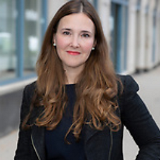
Raquel Mura, PharmD, Founder, RGM Life Sciences Consulting; Former Vice President & Head, R&D North America, Sanofi

Raquel Mura is a distinguished global regulatory strategist and R&D transformation expert, celebrated for her ability to develop high-performing cross-functional teams. She is an advocate for the role of technology and AI in enhacing decision making, innovation, and the human experience, having spearheaded digital transformation initiatives, including advanced analytics and automation of processes. Mura has successfully optimized global R&D operations, transformed operating models, and has crafted regulatory strategies to drive innovation and pipeline growth. Her career includes leadership roles at Sanofi, Pfizer, Novartis, and Bristol-Myers, having lived and worked in North America, Europe and South America. A PharmD, JD and MBA, she has earned accolades such as the TOPRA Inspiration Award, HBA Luminary and recognition as one of America’s Most Inspirational Women in Leadership. A committed advocate for equity, she led and contributed to various initiatives, including the HBA's Gender Equity Think Tank.

Sridhar Narayan, PhD, Vice President, ReviR Therapeutics

Sridhar Narayan is a scientist and entrepreneur with extensive experience in the life sciences industry. Prior to ReviR, he was VP of Drug Discovery and Program Leadership at Satellos Bioscience, which he helped launch in 2018. In 2015, he was involved in starting Appili Therapeutics where he served as Project Director and Member of the Scientific Advisory Board until 2020. Previously, Sridhar held scientific leadership positions at AstraZeneca and Eisai, where he led projects from early discovery through IND and FIH studies. He has a track record of moving several compounds into clinical development and his expertise spans oncology, immunology/inflammation, metabolic disorders, CNS, and infectious diseases. Sridhar received his PhD from the University of Michigan and carried out postdoctoral research at the Scripps Research Institute. He holds an MBA from the Yale School of Management

Amit Nayyar, PhD, General Manager, Cohance

Dr. Amit Nayyar is a distinguished medicinal chemist and drug discovery scientist with over two decades of experience in synthetic and medicinal chemistry. His work has been instrumental in developing life-saving treatments for infectious diseases, cancer, and metabolic disorders. Notably, he played a pivotal role in the development of Pretomanid (PA-824), an FDA-approved drug for treating extensively drug-resistant (XDR) and multidrug-resistant (MDR) tuberculosis. His expertise encompasses multiple therapeutic areas, including oncology, infectious diseases, and kinase inhibitor research. Currently, Dr. Nayyar serves as the General Manager at Cohance Life Sciences in Montreal, Canada, where he leads innovative projects in antibody-drug conjugates (ADCs), payload linkers, and novel payload development, advancing targeted cancer therapies. Previously, as a Principal Scientist at Theratechnologies Inc., he contributed to peptide-drug conjugates utilizing SORT1 Technology™, optimizing linker chemistry for enhanced stability and efficacy. His efforts resulted in the development of two preclinical candidates awaiting movement to clinic. Dr. Nayyar also served as a Principal Scientist at Paraza Pharma, where he played a key role in protein kinase inhibitor (PKI) programs. His early career included positions at Advanced Molecular Technologies (AMT) in Australia, AMRI Global in Singapore, and the National Institutes of Health (NIH) in Bethesda, USA, where he contributed to tuberculosis drug development in collaboration with the Novartis Institutes for Tropical Diseases. Beyond drug development, Dr. Nayyar has extensive experience in strategic project management, patent filings, and cross-functional collaborations. He has authored multiple patents and high-impact peer-reviewed publications. His expertise is recognized internationally, and he actively contributes as a peer reviewer for leading scientific journals, ensuring the advancement of medicinal chemistry and pharmacology research. Dr. Nayyar holds a Ph.D. in Medicinal Chemistry from the National Institute of Pharmaceutical Education and Research (NIPER), India. His contributions have been recognized through prestigious accolades, including high citation awards and conference recognitions. As a member of esteemed organizations such as the American Chemical Society (ACS) and the Indian Pharmaceutical Congress, he continues to drive innovation in drug discovery, shaping the future of targeted therapeutics.

Nam Nguyen, PhD, Principal Scientist, Therapeutic Proteins, Regeneron Pharmaceuticals Inc.

Nam is a principal scientist and group leader of the Membrane Technologies Group at Regeneron Pharmaceuticals. Nam's research background is in ion channel structure biology and he was among the first individuals to determine the structure of the mitochondrial calcium uniporter, providing insights into its mechanism of calcium transport and selectivity. Since joining Regeneron in 2019, Nam has continued to apply his biochemical and structural biology background towards the production of a range of cell surface receptors -- ion channels, transporters, tetraspanins, GPCRs, etc. -- and protein complexes to support therapeutic antibody discovery and structural studies.

Joeri Nicolaes, PhD, Computer Scientist & DT Lead, AI Solutions & Multimodal AI, UCB Pharma

Joeri obtained a PhD in Electrical engineering in 2023 from the Medical Image Computing lab of KU Leuven. He joined UCB in 2014 where he focuses on developing and validating machine learning algorithms for computer vision tasks. He presented his research at various international engineering and medical congresses and was honored to receive the 2022 ESCEO-IOF and 2022 ASBMR Young Investigator Awards for the presentation of two validation studies. He is also affiliated as research fellow with the Processing Speech and Images research group at the KU Leuven, supervising students in the field of biomedical image analysis.

Sherry Niessen, PhD, Vice President, Proteomics, Belharra Therapeutics

Sherry Niessen is the Head of Platform & Proteomics at Belharra Therapeutics and is focused on chemical probe discovery in cells through chemoproteomics. She has 15+ years of experience in chemical biology and proteomics. Prior to joining Belharra, she was at Pfizer in La Jolla, leading a chemoproteomics group focused on oncology drug discovery with an emphasis on target engagement, biomarker discovery, and mechanism of action of proteins and small molecules. Sherry completed her PhD at The Scripps Research Institute in the laboratory of Dr. Ben Cravatt, her MS in Experimental Medicine from McGill University, and a BS in Biochemistry from Simon Fraser University.
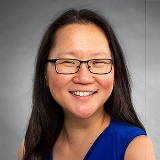
Gisele Nishiguchi, PhD, Group Leader, St. Jude Children's Research Hospital

Gisele received her PhD from the University of California, Santa Barbara, where she completed the total synthesis of a natural product in 32 steps applying a novel methodology in C-glycoside chemistry. After her PhD, she joined Novartis as a medicinal chemist, where she worked on several projects, resulting in the identification of two clinical candidates and several chemical probes. In 2018, she transitioned to a new role at St. Jude Children’s Research Hospital as a group leader and assisted in the evaluation and improvement of St. Jude’s compound collection and establishment of a targeted protein degradation platform focused on pediatric indications.

Daniel Nomura, PhD, Professor of Chemical Biology and Molecular Therapeutics, Department of Chemistry, University of California, Berkeley

Dan Nomura is a Professor of Chemical Biology and Molecular Therapeutics in the Department of Chemistry and the Department of Molecular and Cell Biology in the Division of Molecular Therapeutics at the University of California, Berkeley, and an Investigator at the Innovative Genomics Institute. He is also the Co-Director of the Molecular Therapeutics Initiative at UC Berkeley. He is an Adjunct Professor in the Department of Pharmaceutical Chemistry at UCSF. Since 2017, he has been the Director of the Novartis-Berkeley Translational Chemical Biology Institute focused on using chemoproteomic platforms to tackle the undruggable proteome. He is Co-Founder of Frontier Medicines, a start-up company focused on using chemoproteomics and machine learning approaches to tackle the undruggable proteome. He is also the Founder of Vicinitas Therapeutics based on his group’s discovery of the Deubiquitinase Targeting Chimera (DUBTAC) platform for targeted protein stabilization. He is on the Scientific Advisory Boards for Frontier Medicines, Vicinitas Therapeutics, Photys Therapeutics, Apertor Pharma, Ecto Therapeutics, Oerth Bio, and Deciphera Pharmaceuticals. Nomura is also on the scientific advisory boards of The Mark Foundation for Cancer Research and the MD Anderson Cancer Center. He is also an Investment Advisory Partner at a16z Bio+Health, an Investment Advisory Board member at Droia Ventures, and an iPartner with The Column Group. He earned his BA in Molecular and Cell Biology in 2003 and PhD in Molecular Toxicology in 2008 at UC Berkeley with Professor John Casida and was a postdoctoral fellow at Scripps Research with Professor Benjamin F. Cravatt before returning to Berkeley as a faculty member in 2011. Among his honors include the National Cancer Institute Outstanding Investigator Award, Searle Scholar, and the Mark Foundation for Cancer Research ASPIRE award.

Akos Nyerges, PhD, Research Associate, Department of Genetics, Harvard Medical School

Dr. Akos Nyerges is an NIH/NIBIB K99-funded research associate at Harvard Medical School. His research focuses on genome synthesis and genetic code engineering for virus resistance, biocontainment, and the production of genetically encoded unnatural polymers. Prior to Harvard, as a Boehringer Ingelheim Fonds Ph.D. Fellow, he developed tools for directed evolution and genome engineering and utilized these tools for rational antibiotic design and biomolecular engineering. Akos’s long-term goal is to merge genome and genetic code engineering with drug development to advance our understanding of the design principles of biological systems and enable therapeutic applications that are not attainable with existing cell-based therapies and biopolymers.

Kinsi Oberoi, Lead Technical Solution Consultant, Clarivate

Kinsi Oberoi is a trained bioinformatician with a solid foundation in genomic research and a deep commitment to continuous learning in emerging scientific domains. Since joining Clarivate in 2018, she has advanced to the role of Lead Solution Consultant, leveraging over a decade of experience in the life sciences industry. In her pre-sales role, Kinsi specializes in translating complex scientific and technical requirements into tailored solutions, partnering with clients to demonstrate the strategic value of data-driven platforms and informatics tools that accelerate research and development.

Tudor Oprea, MD, PhD, CEO, Expert Systems, Inc.

Tudor I. Oprea is a digital drug hunter with three decades of experience in knowledge management applied to target and drug discovery. He co-developed ChemGPS, the “lead-like approach,” systems chemical biology, and a knowledge-based classification for human proteins. He co-discovered the first GPER agonist (orphan drug designated, LNS8801), GPER antagonist, and several GLUT transporter inhibitors. His machine-learning models include cheminformatics, drug discovery, disease, and target biology. His team maintains DrugCentral and Pharos, part of an NIH Common Fund project. He co-authored over 300 publications and 10 US patents and edited 2 books on informatics in drug discovery. He is CSO at Expert Systems, Inc., a San Diego-based i2020 Accelerator company.

Raluca Ostafe, PhD, Director, Molecular Evolution, Purdue University

Dr. Raluca Ostafe is the Director of Purdue University’s Molecular Evolution, Protein Engineering and Production (MEPEP) lab. With over a decade of experience in high-throughput screening, enzyme engineering, and protein evolution, she develops droplet microfluidic-based platforms for the discovery of antibodies, peptides, and enzymes. Her work spans diverse expression systems and applications, including receptor proteins and functional assays. Dr. Ostafe earned her Ph.D. from RWTH Aachen and held postdoctoral positions at Harvard and Fraunhofer IME. She currently leads a protein discovery lab focused on industrial enzymes, therapeutic antibodies, and drug screening.

William N. Pappano, PhD, Research Fellow, AbbVie, Inc.

Bill Pappano is a Senior Principal Research Scientist within the Oncology Discovery Research Organization at AbbVie. He received his PhD from the University of Wisconsin-Madison in Biomolecular Chemistry and did his postdoctoral studies at Johns Hopkins School of Medicine in the Department of Molecular Biology and Genetics. His current role is as a small molecule Project Director within later stage drug discovery. He has expertise in new target discovery, small molecules, biologics, and antibody-drug conjugates.
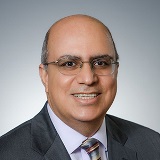
Keykavous Parang, PhD, Professor, Biomedical and Pharmaceutical Sciences, Chapman University

Dr. Parang holds the position of Full Professor in Medicinal Chemistry and Pharmacology at Chapman University School of Pharmacy situated in Irvine, California. Additionally, he maintains a dual role as a faculty member within the Department of Chemistry and Biochemistry at the Schmid College of Science and Technology, also part of Chapman University. In a collaborative capacity, Dr. Parang contributes his expertise as an affiliate volunteer faculty member, specifically as a Project Scientist Step III, within the division of Nephrology and Hypertension in the Department of Medicine at the University of California, Irvine. Dr. Parang's academic journey includes earning his PhD in medicinal chemistry from the Faculty of Pharmacy at the University of Alberta in 1997. Following this, he embarked on a postdoctoral study focusing on solid-phase organic synthesis within the Department of Chemistry. He furthered his postdoctoral studies in bioorganic chemistry, undertaking research at Rockefeller University in New York and Johns Hopkins University in Baltimore. His research at the University of Rhode Island commenced in October 2000, where he subsequently ascended to the rank of full professor in July 2008. During his time there, he undertook the role of Program Coordinator for the Rhode Island IDeA Network of Biomedical Research Excellence (RI-INBRE) NIH program from 2012 to 2013. Dr. Parang's contributions to the academic community are evidenced by his authorship of 232 peer-reviewed publications, 23 patents or patent applications, and 198 meeting abstracts. His research pursuits converge at the dynamic crossroads of chemistry and biology, with a particular emphasis on medicinal chemistry, organic chemistry, nanomedicine, and drug delivery. His research activities encompass: 1. Devising Peptides as Agents against Bacterial and Fungal Infections 2. Leveraging Peptide Nanomaterials for the Advancement of Drug Delivery 3. Innovating Inhibitors for Protein Tyrosine Kinases 4. Pioneering the Development of Multifunctional Antiviral Agents

Joe Patel, PhD, Vice President and Head of Discovery, Nexo Therapeutics

After completing graduate studies in protein crystallography at Cambridge University, I joined Astex Pharmaceuticals to focus on the early development of small molecules using fragment-based drug discovery. I continued a hit identification focus at AstraZeneca both in the UK and Boston research hubs before joining C4 Therapeutics in 2016. In 2021, I joined Treeline Biosciences to build out their Structural Biology, Biophysics and Biochemistry capabilities across sites in MA and CA. In 2023, I joined Nexo Therapeutics to build and lead the discovery organization as we pursue clinical relevant targets.
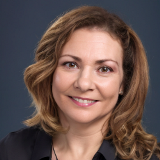
Janet Paulsen, PhD, Senior Alliance Manager, Drug Discovery, NVIDIA Corp.

Janet Paulsen, PhD, is Senior Alliance Manager for Drug Discovery at NVIDIA, where she leads strategic partnerships that leverage AI and accelerated computing to advance pharmaceutical research and development. Previously, she served as Director of Applied Computational Chemistry at Recursion, where she built and led teams to develop innovative computational workflows and AI-driven solutions for drug discovery. Janet has also held scientific roles at Schrödinger, focusing on global health initiatives and advanced molecular modeling. Recognized for accelerating drug discovery through innovation and collaboration, Janet’s expertise encompasses physics-based simulations, virtual screening, and the integration of AI models. She earned her PhD in pharmaceutical sciences from the University of Connecticut and completed postdoctoral research at Harvard Medical School and the University of Massachusetts Medical School. Throughout her career, Janet has driven the adoption of cutting-edge computational approaches to enhance the efficiency and impact of drug discovery efforts.
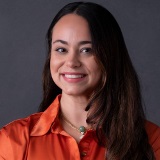
Nisha Perez, ScD, MS, MSPM, Vice President, Preclinical Development & Clinical Pharmacology, ROME Therapeutics

Nisha Perez is a seasoned preclinical development and clinical pharmacology leader with a deep DMPK expertise. She has worked across multiple therapeutic areas, including cancer, IO, rare diseases, fibrosis, inflammation, women’s health, and GI. She has contributed to multiple program strategies, regulatory filings (10 INDs), and drug approvals (3 NDAs). She serves as an SAB member, has 2 patents granted, and was part of the 2023 award-winning IQ consortium team for leading guidance on at-home blood sampling for clinical trial continuation during the COVID-19 pandemic. She earned her ScD in Medical Science from Northeastern and MS in Chemistry & Chemical Biology from Boston College.

John Piccone, Founder & CEO, URIKA bioworks

As a Partner at URIKA [bioworks], I help our Pharmaceutical, Biotech and research institution clients utilize synthetic biology, scientific knowledge graph and integrated multi-omics data to accelerate novel target discovery. We assemble biological atlases by combining the knowledge graph with multi-omics data and generalized maps of anatomy, histology and cell biology to visualize biology realistically. We develop algorithms to produce novel biological insights through inferencing and graph RAG. We use AI and machine learning to identify the scientific frontier for a disease or topic and recommend experimentation required to advance the scientific frontier in directions that purposefully elucidate disease biology. In addition, we use human cells, tissue culture and organoids to systematically produce experimental data to elucidate novel biology beyond the scientific frontier. This work is a continuation of the scientific and technical progression initiated at IBM, Watson Health and in the Biomedical Research practice at ZS Associates.
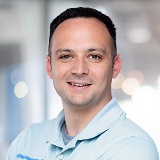
Joshua P. Plotnik, PhD, Principal Research Scientist, Oncology Discovery Research, AbbVie, Inc.

Joshua Plotnik, PhD, is a Principal Research Scientist at AbbVie in the Oncology Discovery Research organization. Since joining AbbVie, he has led early target identification and hit-to-lead efforts in mechanisms driving tumor intrinsic dependencies and biology efforts for ABBV-525. He also serves as the AbbVie representative for the Broad DepMap Consortium. He joined AbbVie in 2017 as a postdoctoral fellow after receiving his PhD from Indiana University in Bloomington, IN, in 2016. Prior, he received his BS in Biological Sciences from Carnegie Mellon University in Pittsburgh, PA.

David Proia, PhD, Senior Vice President, Biology and Drug Discovery, Acrivon Therapeutics

Dr. David Proia is the Senior Vice President of Biology and Drug Discovery at Acrivon Therapeutics in Watertown, Massachusetts, where he supports the clinical development of the CHK1/2 inhibitor ACR-368 (including its protein-based, predictive biomarker OncoSignature) and the discovery/development of ACR-2316, a dual WEE1/PKMYT1 inhibitor. Prior to Acrivon, Dr. Proia served as VP of Oncology at ROME Therapeutics, where he led the biology efforts for agents targeting an endogenous reverse transcriptase. He was also Senior Director of In Vivo Pharmacology at C4 Therapeutics, project lead for the IKZF1/3 degrader cemsidomide currently in Phase 1/2 studies for myeloma, and supported numerous other degrader programs. Earlier, as Director of Cancer Biology and In Vivo Pharmacology at Synta Pharmaceuticals, he supported the clinical development of the HSP90 inhibitor ganetespib and led the discovery and development of the HSP90 inhibitor/SN-38 drug conjugate STA-8666. His biopharmaceutical career commenced as a Scientist at AstraZeneca.Dr. Proia holds a B.S. in Biochemistry from Worcester Polytechnic Institute and a Ph.D. in Molecular and Cellular Biology from Baylor College of Medicine. He has mentored for many local and national science organizations (currently SMDP) and is on the Board of Directors for CoLAB, a non-profit organization that partners life science companies with high school students to build awareness for STEM careers.

Devin Quinlan, PhD, Principal, Investment, MPM BioImpact Inc.

Devin Quinlan is a Principal on the investment team at MPM BioImpact, where he is focused primarily on early-stage investment and company creation. Since joining MPM BioImpact, Devin has been involved in multiple investments, including Orna Therapeutics, Seawolf Therapeutics, Firefly Bio and AstronauTx. Additionally, Devin serves as a Board Observer at Crossbow Therapeutics and Firefly Bio, and he also supports a number of MPM BioImpact’s strategic relationships. Devin completed his Ph.D. in Biological Engineering at the Massachusetts Institute of Technology (MIT).

Rayees Rahman, PhD, Co-Founder & CEO, Harmonic Discovery

Rayees Rahman is CEO and co-founder of Harmonic Discovery. Rayees completed his PhD in Biophysics and Systems Pharmacology at the Icahn School of Medicine at Mount Sinai where he developed machine learning models to characterize protein kinase structural biology.
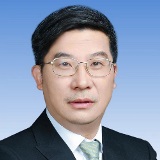
Hai Rao, PhD, Professor and Chair, Department of Biochemistry, Southern University of Science and Technology, China

The long-term goal of our lab is to understand the mechanism and function of ubiquitin-mediated proteolysis. Dr. Rao had strong trainings in biochemistry, genetics, and cell biology under the guidance of Drs. Bruce Stillman (Cold Spring Harbor Laboratory) and Alex Varshavsky (California Institute of Technology). As a postdoc in Dr. Varshavsky's lab, I discovered a cohesin subunit Scc1 as the first physiological substrate of the N-end rule pathway, which was the first ubiquitin-dependent degradation pathway identified 15 years earlier using artificial substrates and its use was instrumental in uncovering critical mechanistic attributes of the ubiquitin system. Since 2002, Dr. Rao has established his own independent laboratory at the University of Texas Health, San Antonio and has risen up to tenured Professor. As PI on the American Cancer Society-, NIH- and DOD-funded grants, he has developed unique angles and novel assays to define how proteins are selected and escorted to the proteasome, and also the significance of regulated proteolysis in cancers and prion diseases.

Arvind Rao, PhD, Associate Professor, Department of Computational Medicine and Bioinformatics, University of Michigan

Arvind Rao is an Associate Professor in the Department of Computational Medicine and Bioinformatics at the University of Michigan. His group uses image analysis and machine learning methods to link image-derived phenotypes with genetic data, across biological scale (i.e. single cell, tissue and radiology data). Such methods have found application in radiogenomics and drug repurposing based on phenotypic screens. Arvind received his PhD in Electrical Engineering and Bioinformatics from the University of Michigan, specializing in transcriptional genomics, and was a Lane Postdoctoral Fellow at Carnegie Mellon University, specializing in bioimage informatics.

Garrett Rappazzo, PhD, Scientist, Platform Technologies, Adimab

As a scientist at Adimab, my work focuses on identifying and engineering protein therapeutics that target peptide-HLA (pHLA) complexes. As part of this work, my team has developed a novel yeast-based platform to engineer soluble T cell receptors (TCRs) as an alternative to antibody-based therapeutics in targeting pHLA complexes. Prior to joining Adimab, I completed my doctoral research at MIT in Prof. Michael Birnbaum’s lab, where I worked to characterize the peptide-binding repertoires of Class II HLA proteins.
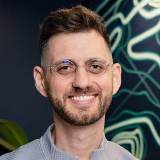
Alex Reis, PhD, Principal Scientist, Computation, Manifold Biotechnologies Inc.

Alex Reis is a synthetic biologist with over 10 years of combined academia and industry research experience in microbial engineering, biomolecule sequence-to-function modeling, and multiplexing technology development using large DNA libraries and next-generation sequencing. At Manifold Bio, he works in an interdisciplinary way between protein barcoding (mCodes) technology development and applied use of mCodes in HT Vivo (HTV) screening formats for assorted programs. During his academic career, he studied the determinants of translation initiation through biophysical models, as well as explored pushing the size limits of genetic construct design using nonrepetitive DNA design to make 30-plex synthetic CRISPR interference sgRNA arrays to engineer complex desired phenotypes in E. coli. He received his Ph.D. in Chemical Engineering from Pennsylvania State University. He is published in a number of relevant journals including ACS Synthetic Biology and Nature biotechnology.

Fengbo Ren, Founder & CEO, Fovus

Dr. Fengbo Ren is the founder and CEO of Fovus, an AI-powered serverless HPC platform for enterprises. In addition to being an entrepreneur, Dr. Ren is a distinguished researcher and educator in the field of computer engineering, specializing in high-performance computing (HPC), machine learning, and energy-efficient computing systems. He was previously an associate professor at Arizona State University (ASU), where he led cutting-edge research aimed at optimizing computing architectures to improve performance, scalability, and energy efficiency across various systems. Ren's work has significantly advanced the development of high-efficiency hardware and software systems for artificial intelligence (AI) and data-intensive applications. Dr. Ren earned both his M.S. and Ph.D. in Electrical and Computer Engineering from the University of California, Los Angeles. Over the years, he has authored numerous high-impact research papers and has been recognized with several prestigious awards and grants, including the Google Faculty Research Award and the National Science Foundation (NSF) CAREER Award. With over a decade of research and development experience in HPC, AI, and systems, Dr. Ren brings a unique blend of domain knowledge and expertise to lead Fovus in shaping the future of HPC and democratizing access to these powerful technologies for all.

Dominic J. Reynolds, PhD, CSO, R&D, Remix Therapeutics

Dominic Reynolds, Ph.D., serves as the Chief Scientific Officer at Remix, where he spearheads the discovery and development of small molecules aimed at reprogramming RNA processing for therapeutic applications. With over 20 years of experience in the biotechnology sector, Dominic has a proven track record of building successful biotech companies and advancing innovative drug discovery programs. Dominic began his career at Millennium Pharmaceuticals, where he developed a strong foundation in medicinal chemistry and drug discovery. He joined Forma Therapeutics and then H3 Biomedicine as a founding member, assuming the role of VP, Head of Chemistry, at H3 Biomedicine, where he was critical in driving their drug discovery initiatives. As a drug discovery consultant for Third Rock Ventures and Atlas Venture, Dominic provided strategic guidance to seed-stage biotech companies, leveraging his extensive experience in oncology and neurodegeneration therapeutics. His leadership and scientific expertise have been pivotal in advancing multiple therapeutic candidates into clinical trials and developing sustainable drug discovery pipelines. Dominic earned his Ph.D. in synthetic chemistry from the University of Cambridge and completed postdoctoral training at Harvard University, focusing on natural product synthesis. At Remix, Dominic's vision and expertise drive the company's mission to develop novel RNA-targeted therapeutics. His leadership is characterized by confident communication, building high performing teams, and a commitment to delivering innovative science on aggressive timelines. Dominic is dedicated to further developing Remix’s unique and innovative approach to manipulating RNA and translating that science into meaningful treatments for patients.
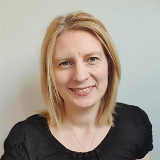
Emma Rivers, PhD, Director, Medicinal Chemistry, AstraZeneca

Emma Rivers is a Director of Chemistry in the Hit Discovery Department at AstraZeneca, where she leads a team focused on the identification and optimisation of hits to deliver impact across the small molecule portfolio. Her team work across a wide range of lead generation strategies, including HTS, fragment-based drug discovery, DNA-encoded library screening, and covalent MS screening, to deliver a fully integrated hit finding approach. She received her Ph.D. from Imperial College London in organic synthesis and then joined GSK as a medicinal chemist in the Neuroscience group, working on both hit to lead and lead optimisation efforts. Since joining AstraZeneca, she has worked on numerous early-stage drug discovery projects and led the DNA-encoded library platform.
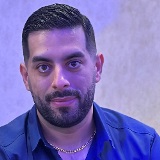
Milad Rouhimoghadam, PhD, Senior Scientist I, Small Molecule Therapeutics & Platform Technology, AbbVie

Milad Rouhimoghadam is a Senior Scientist at AbbVie. Prior to joining AbbVie, Milad was focused on targeted protein degradation platform and development of new assays to study protein degradation pathways and protein conformational states. At AbbVie, Milad is leading the NanoBRET Platform within the Targeted Protein Degradation group where he is developing cell-based NanoBRET assays to support the discovery of novel degraders, E3 ligases, and molecular glues, enabling high-throughput MOA profiling and mechanistic insights across programs.
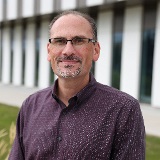
Laurent Sabbagh, PhD, Scientific Director, Domain Therapeutics

Laurent Sabbagh holds a PhD in immunology from McGill University. Following his doctoral degree Dr. Sabbagh undertook postdoctoral fellowships at the Ontario Cancer Institute and the University of Toronto before being recruited by University of Montreal as an assistant professor working on the role of TNF receptors in immunological memory, inflammation and hematological malignancies. In the fall of 2013, Dr. Sabbagh was recruited by Vertex Pharmaceuticals (Canada) where he led biomarker discovery efforts for inflammatory bowel disease and small molecules drug discovery programs for polycystic kidney disease. Subsequently, Dr. Sabbagh led research programs aimed at drug discovery of small molecules for the treatment of inflammatory disorders and cancer at Paraza Pharma Inc. in Montreal. Laurent is currently Scientific Director at Domain Therapeutics (North America) leading drug discovery efforts of new molecules and antibodies targeting G protein-coupled receptors (GPCRs) for various therapeutic areas (immuno-oncology, metabolic disorders, obesity, CNS).

Gottfried Schroeder, PhD, Associate Principal Scientist, Quantitative Biosciences, Merck & Co., Inc.

Dr. Gottfried Schroeder joined the Biochemistry and Biophysics group at MSD (Boston, MA) in 2012. Since that time Gottfried has applied a wide range of biophysical techniques coupled with automation to projects in multiple disease areas from the early discovery through preclinical candidate space. These efforts encompassed small-scale screening to in-depth mechanism of action studies, including several clinical assets. In 2015, Gottfried assumed a leadership role in surface plasmon resonance (SPR) at the Boston site providing continued support for multiple preclinical and clinical programs spanning small molecule, peptide, and oligonucleotide modalities. Dr. Schroeder received his doctorate (UNC-Chapel Hill) under Richard Wolfenden with a focus on enzymology and biophysics. His postdoctoral work at UT-Austin with Chris Whitman and Kenneth Johnson (collaboration) centered on advanced transient state kinetics methods and enzyme mechanism. Gottfried’s current interests include further integration and application of SPR data to the drug discovery process.

Douglas Selinger, PhD, CEO & Founder, Plex Research Inc.

As an early pioneer of microarray technology, Doug authored some of the first publications describing experimental and computational approaches for large scale transcriptional analyses. After completing his Ph.D. in George Church’s lab at Harvard, he joined the Novartis Institutes for Biomedical Research where his 14-year career spanned the entire drug discovery pipeline, including significant work in target ID/validation, high throughput screening, and preclinical safety. In 2017, Doug founded Plex Research to develop a novel form of AI based on search engine algorithms. Plex’s unique platform has helped dozens of biotech and pharma companies accelerate their drug discovery pipelines by providing interpretable and actionable analyses of massive chemical biology and omics data sets.

Kathleen Seyb, PhD, Senior Vice President, Biology & Translational Sciences, Triana Biomedicines Inc.

Dr. Seyb joined TRIANA Biomedicines in September of 2021 to build and lead the biology and translational sciences team. Previously, she served as VP of Research at Ohana Biosciences, focused on developing novel treatments to improve reproductive health. Dr Seyb held positions of increasing responsibly at Ra Pharmaceuticals, inclusive of leading the biology function from discovery through Phase 2 clinical development, as well as the company’s collaboration with Merck that yielded an orally bioavailable tricyclic peptide inhibitor of PCSK9 currently in clinical development. Dr. Seyb received her Ph.D. in Pharmacology and Toxicology from the University of Kansas.
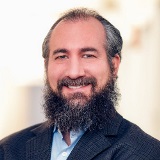
Woody Sherman, PhD, CIO, Psivant Therapeutics

Woody Sherman is CEO, Psivant Therapeutics and a thought leader in molecular simulations and computer-aided drug design, with over 90 peer-reviewed publications covering novel methods and applications. As Chief Computational Scientist at Roivant, Woody oversaw the computational strategy, implementation, and deployment of computational methods. He received his B.S. in Physical Chemistry from the University of California at Santa Barbara where he studied nonlinear optical properties of organic polymers using computational quantum mechanics methods. He completed his Ph.D. at MIT working in Professor Bruce Tidor’s lab where he examined the role of electrostatics in protein-ligand binding and implemented a novel method for optimizing ligand binding specificity across a panel of targets. While in graduate school he worked at Biogen where he developed novel methods to enhance antibody affinity via electrostatic charge optimization, resulting in a publication and patent. As Global Head of Applications Science at Schrödinger, led research, product development, methods development, and the deployment of Python-based tools. He also worked closely with Pharma partners on research projects and collaborations. Woody has published on a broad range of topics, including induced-fit docking, ensemble docking, molecular dynamics, free energy simulations, protein design, small molecule optimization, cheminformatics, hybrid ligand/structure-based methods, charge optimization, pharmacophore modeling, and more.
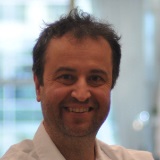
Mikolaj Slabicki, PhD, Assistant Professor, MGH/Broad Institute

Mikolaj Slabicki, Ph.D., is a Principal Investigator at the MGH Krantz Family Center for Cancer Research, an Assistant Professor of Medicine at Harvard Medical School, and an Affiliate Faculty Member at the Broad Institute of MIT and Harvard.

Parthiban Srinivasan, PhD, Professor and Director, Centre for AI in Medicine, Vinayaka Mission's Research Foundation, India

Parthiban Srinivasan, an experienced data scientist, earned his PhD from Indian Institute of Science, specializing in Computational Chemistry. After his PhD, he continued the research at NASA Ames Research Center (USA) and Weizmann Institute of Science (Israel). Then he worked at AstraZeneca in the area of Computer Aided Drug Design for Tuberculosis. Later, he headed informatics business units in Jubilant Biosys and then in GvkBio before he floated the company, Parthys Reverse Informatics and later an AI consultancy, Vingyani. Then he returned to academia as a Professor of Data Science at the Indian Institute of Science Education and Research, Bhopal. Currently, Parthiban is a Professor and Director at the Center for AI in Medicine, Vinayaka Missions Research Foundation, AV Medical College and Hospital, Puducherry, India
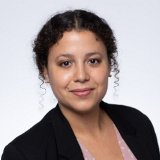
Morgan Stanton, PhD, CEO, Opal Therapeutics

Dr. Morgan Stanton is the CEO of Opal Therapeutics, a women’s health biotech company focused on innovative drug discovery for chronic gynecological disorders and pain. She has a PhD in Chemistry from Worcester Polytechnic Institute and completed her Postdoc at the Max Planck Institute for Intelligent Systems in Germany. Her background in chemistry and tissue engineering, with a specialization in organoid models, has driven her career in disease phenotyping and drug discovery. Previously, she served for five years as Director of Discovery Biology at Herophilus, where she developed one of the first scalable brain organoid platforms for screening therapeutics in neurodegenerative diseases and created one of the pioneering industrial neuroimmune models. Under Dr. Stanton’s leadership Herophilus was acquired by Roche/Genentech in 2023. Her work has resulted in numerous patents and publications for tissue engineering in drug discovery.
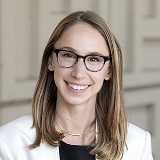
Jessica Stark, PhD, Assistant Professor of Biological Engineering, Chemical Engineering, Koch Institute for Integrative Cancer Research, Massachusetts Institute of Technology

Jessica Stark is an Assistant Professor in the departments of Biological Engineering and Chemical Engineering at MIT and an intramural member of the Koch Institute for Integrative Cancer Research. The Stark Lab is developing biological technologies to realize the largely untapped potential of glycans for immunological discovery and immunotherapy. As an American Cancer Society Postdoctoral Fellow with Prof. Carolyn Bertozzi at Stanford University, Jessica’s work focused on identifying and targeting glycans that act as immune checkpoints for next-generation cancer immunotherapy. As an NSF Graduate Research Fellow with Prof. Michael Jewett at Northwestern University, Jessica developed cell-free technologies for protein therapeutic and vaccine production that promise to enable portable and personalized medicine. Previously, she received her B.S. in Chemical and Biomolecular Engineering from Cornell University and worked at Genentech, Inc. in process development and research and development roles. Jessica’s independent work has been recognized with a Burroughs Wellcome Fund Career Award at the Scientific Interface, the Society for Immunotherapy of Cancer’s Steven A. Rosenberg Scholar Award, and a V Foundation V Scholar Award. The Stark lab is committed to enhancing diversity, equity, and inclusion in STEM through mentoring, outreach, and service activities. To support this work, Jessica co-developed and commercialized BioBits educational kits that promise to increase access to high-quality biology education by facilitating hands-on learning.

Erland Stevens, PhD, James G. Martin Professor, Department of Chemistry, Davidson College

Erland Stevens is formally trained as a synthetic organic chemist, with a PhD from the Department of Chemistry at the University of Michigan at Ann Arbor. He specialized in nitrogen heterocycle synthetic methodology. After completing his postdoctoral research at The Scripps Research Institute in La Jolla, CA, he joined the chemistry faculty at Davidson College in Davidson, NC. In addition to teaching organic chemistry, he created an undergraduate medicinal chemistry course and later published a textbook, Medicinal Chemistry: The Modern Drug Discovery Process, with Pearson Education. He then created an online medicinal chemistry course, which has been continuously revised and publicly available for approximately 10 years. He subsequently worked with Novartis to create additional online materials that are used with employees for continuing education purposes. He maintains an interest in the computational prediction of pharmacokinetic parameters based on structural features of drug-like structures.

Stefanus Steyn, PhD, Research Fellow, Pharmacokinetics Dynamics & Metabolism, Pfizer

I have a Ph.D. in Pharmaceutical Chemistry and completed post-doctoral studies in the laboratory of Professor Neal Castagnoli at Virginia Tech. I have over 20 years pharmaceutical industry experience with over forty co-authored publications. I have spent most of my career at Pfizer in various roles within PDM (DMPK), supporting projects ranging from oncology to neuroscience and currently, Inflammation and Immunology (I&I). I am currently a Research Fellow, and my responsibilities include setting the DMPK research and project strategies within the I&I Research Unit. In addition, my team and I function as Project Representative within I&I while I also have responsibilities as a Research Project Lead for various Discovery programs. My interests include prediction of human ADME as well as exploring physicochemical properties and how they relate to ADME with a focus on absorption. PROTACs are of special interest given their unique beyond Rule-of-5 properties and the ADME challenges they present relative to classical small molecules.

William Streilein, PhD, Principal Staff, Biotechnology & Human Systems, Massachusetts Institute of Technology

While on recent assignment to the Department of Defense, Dr. William W. Streilein served as the Chief Technology Officer at the Chief Digital and Artificial Intelligence Office where he provided strategic technical vision and shaped the department's thinking on generative AI and AI/ML scaffolding in support of mission-relevant adoption of AI. Prior to his position as a principal staff member within the Biotechnology and Human Systems Division, Streilein led the Cyber Analytics and Decision Systems Group, where his work focused on the application of AI and machine learning to problems in cybersecurity, including threat detection and characterization. Other work in the group included the development of quantitative cybersecurity measurement and modeling capabilities, cyber moving target techniques, and technologies to enhance system resiliency. Streilein holds a BA degree in mathematics from Austin College, an MM degree in electronic and computer music from the University of Miami, and a PhD in cognitive and neural systems from Boston University.

Asad Taherbhoy, PhD, Director, Drug Discovery, Foghorn Therapeutics

Asad Taherbhoy is Director, Drug Discovery at Foghorn Therapeutics where he leads Foghorn’s efforts on targeting transcription factors. Prior to joining Foghorn, he worked on understanding and drugging ubiquitin E3 ligases at Nurix and Genentech. Asad carried out his PhD research at St. Jude Children’s Research Hospital in the lab of Brenda Schulman studying ubiquitin and ubiquitin-like protein pathways.

Hok Hei Tam, PhD, Co-Founder and CTO, Montai Therapeutics; Senior Principal, Flagship Pioneering

Hok Hei Tam is Co-founder and Chief Technology Officer at Montai Therapeutics and Senior Principal at Flagship Pioneering. Hok Hei has distinctive expertise in chemical and bioengineering, informatics, and machine learning; he has been a central architect of the Montai strategy to leverage AI to decode untapped, diverse chemistry to develop breakthrough medicines for chronic disease. At Flagship, he has also co-founded four other companies that are using technology to drive solutions across human health and sustainability, including Sail Biomedicines and Invaio Sciences. A named inventor on or author of more than 30 patents and published papers, Hok Hei’s work has been published in top journals including PNAS, Nature Materials, Nature Biotechnology, and Nature Medicine. Hok Hei received a Ph.D. from MIT in chemical engineering and holds B.Sc. degrees in mathematics and chemical engineering from the Ohio State University. Hok Hei’s graduate research was supported by a competitive National Science Foundation Graduate Research Fellowship.
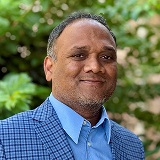
Rajendra P Tangallapally, PhD, Senior Scientist, Chemical Biology & Therapeutics, St. Jude Childrens Research Hospital

After earning PhD in Organic Chemistry joined as post doc at UTHSC, Memphis working on antibiotic drug-development targeting drug resistant pathogens. From 2006 to 2012 at Myriad Pharmaceuticals Inc., as Scientist-Medicinal Chemistry my research focused on small molecule cancer therapeutics. Currently at St. Jude Children’s Research Hospital as Sr. Scientist work on finding cures for rare disorders in children.

Mike Tarselli, PhD, Specialist Leader, Specialists, Amazon.com

Mike Tarselli, Ph.D., MBA is an HCLS Specialist Leader - Data & AI at AWS. His previous 20+ years in scientific and data roles include CSO and CKO at TetraScience, Scientific Director at SLAS, Associate Director at Novartis, and bench scientist roles at Millennium, Ariad, and Biomedisyn. Mike has been recognized with awards by IUPAC, Wikipedia, ACS, , Burroughs-Wellcome Trust, and Keep Massachusetts Beautiful. His volunteer roles promote scientific education and equality at the National Science Foundation, the Pistoia Alliance, and the UMass College of Natural Sciences. Mike's interests include AIML, scientific futurism, natural products, composting, and synthetic biology.

Edward Tate, PhD, Professor, Chemical Biology, Imperial College London

Ed is Professor of Chemical Biology at Imperial College London, a Group Leader at the Francis Crick Institute, and academic founder of Myricx Pharma, a spinout developing his lab’s research into clinical applications. Following his PhD (2000) with Steve Ley in Cambridge and postdoctoral research in Paris as an 1851 Fellow and Howard Trust Fellow, he was awarded a BBSRC David Phillips Fellowship in 2006 to start his group at Imperial College. He sits on the advisory boards of several international research institutes and biotechs, and co-develops drug discovery technologies with companies including Pfizer, Merck, GSK, AstraZeneca, Kura Oncology, and ADC Technologies. His research has been recognised by multiple awards and Fellowships, most recently the 2019 Sir David Cooksey Translation Prize, the 2020 Corday-Morgan Prize of the Royal Society of Chemistry and a Cancer Research UK Programme Award.

Rebecca A. Taub, MD, CMO, President of R&D, Madrigal Pharmaceuticals

Rebecca Taub, MD has served as Chief Medical Officer and Executive Vice President, Research & Development, and as a member of Madrigal’s Board of Directors, since July 2016. Previously, Dr. Taub served as Chief Executive Officer and as a member of the Board of Directors of privately-held Madrigal Pharmaceuticals, Inc. from inception through its merger with Synta Pharmaceuticals Corp. Prior to joining Madrigal, Dr. Taub served as Senior Vice President, Research and Development of VIA Pharmaceuticals from 2008 to 2011 and as Vice President, Research, Metabolic Diseases at Hoffmann-La Roche from 2004 to 2008. In those positions, Dr. Taub oversaw clinical development and drug discovery programs in cardiovascular and metabolic diseases including the conduct of a series of Phase I and II proof of conduct clinical trials. Dr. Taub led drug discovery including target identification, lead optimization and advancement of preclinical candidates into clinical development. From 2000 through 2003, Dr. Taub worked at Bristol-Myers Squibb Co. and DuPont Pharmaceutical Company, in a variety of positions, including Executive Director of CNS and metabolic diseases research. Before becoming a pharmaceutical executive, Dr. Taub was a tenured Professor of Genetics and Medicine at the University of Pennsylvania. Dr. Taub is the author of more than 120 research articles. Before joining the faculty of the University of Pennsylvania, Dr. Taub served as an Assistant Professor at the Joslin Diabetes Center of Harvard Medical School, Harvard University and an associate investigator with the Howard Hughes Medical Institute. Dr. Taub received her MD from Yale University School of Medicine and BA from Yale College.

André A. R. Teixeira, PhD, Senior Director, Antibody Platform, Institution for Protein Innovation

Andre is a pharmacist and biochemist working in antibody development for therapeutic and tool applications. He has developed discovery platforms for multiple pharmaceutical and biotech companies while leading Antibody Library development at Specifica. He currently leads the Antibody Platform at the Institute for Protein Innovation, developing novel antibodies to advance biomedical research.

Dori Thomas-Karyat, PhD, Founder & CEO, Synthis Therapeutics

I obtained my PhD in Immunology from Washington University School of Medicine in St. Louis and then moved to New York City to do a Cancer Research Institute funded post-doctoral fellowship at Memorial Sloan Kettering Cancer Center to study the interface of cancer and the immune system. From there I was a drug discovery project leader in two large pharmaceutical companies, AbbVie and Roche for six years. I am currently the Founder/CEO of Synthis Therapeutics, an early stage biotech company based in NYC, developing novel targeted therapies to restore immune function in cancer patients.
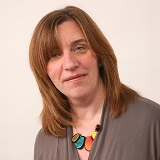
Nicki Thompson, PhD, CEO, TRIMTECH Therapeutics Ltd.

Nicki has over 25 years’ experience in pharmaceutical and biotechnology R&D in a variety of senior scientific and leadership roles. She is CEO of Cambridge-based TRIMTECH Therapeutics (an MRC LMB/UK DRI spin-out), which focuses on a novel targeted protein degradation (TPD) approach to treat neurodegenerative diseases. Nicki was also founding CEO of Amphista Therapeutics. She was previously VP and Global Head of External Drug Discovery at F. Hoffmann-La Roche Ltd and prior to that, Senior Director, Business Development for GSK’s external drug discovery and external innovation groups. Nicki’s Biotech experience also include her roles as CBO, then Chair of the Board for Nanna Therapeutics Ltd (acquired by Astellas Pharma Inc.) and Chair of the Board for Camena Bioscience. She holds a PhD in Cell Biology from University College London.
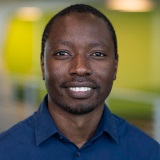
Momar Toure, PhD, Director, Medicinal Chemistry, MOMA Therapeutics

Momar Toure studied chemistry at ENSCM, France, where he earned his M.Sc. degree. He then moved on to complete his Ph.D. degree in Organic Chemistry in the research group of Drs. Jean-Luc Parrain and Olivier Chuzel at Aix Marseille University, France. Momar then went on to conduct postdoctoral work in the research group of Professor Craig Crews at Yale University, where he worked in the TPD field (PROTAC). After Yale, Momar began his professional career in the medicinal chemistry group at EMD Serono, Inc. (Merck KGaA), where he held various positions from Scientist to Principal Scientist. Momar is currently a Director of Medicinal Chemistry at MOMA Therapeutics.
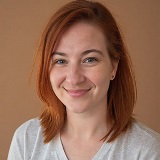
Lindsay Trammell, Principal Associate Scientist, In Vitro Pharmacology, Valo Health

Lindsay Trammell is a Principal Associate Scientist within the In Vitro Pharmacology group at Valo Health in Lexington, MA. She has more than 10 years’ experience in optimizing and validating automated assays. Lindsay’s role currently encompasses Hit ID and Hit to Lead benchwork, with a focus on biochemical, cell-based assay development and validating assay workflows for automated high-throughput workflows. Previously she worked at FORMA Therapeutics in the Lead Discovery and Lead Development and Optimization groups, as well as at Horizon Discovery, as a contributor to their serviced-based screening platform. She received her bachelor’s degree in biotechnology from Syracuse University in Syracuse, New York.

Ching-Hsuan Tsai, PhD, Executive Director, Structure Therapeutics

Currently, I am Executive Director at Structure Therapeutics, where I am leading a team and effort to leverage high-throughput affinity-based selection technologies to discover novel chemical matters for GPCR targets. Prior to Structure Therapeutics, I was Director of Discovery Technologies at Relay Therapeutics, where I led a group focused on advancing DNA Encoded Library screening to enable the discovery of novel chemical matter via Machine Learning. Prior to joining Relay, I worked at GlaxoSmithKline, where I spearheaded efforts to enable functional DEL screening, DEL screens for lead discovery programs, and the application of DEL for targeted delivery.

Allen Tseng, PhD, Senior Principal Scientist, Strand Therapeutics Inc.

Allen Tseng is a Senior Principal Scientist of Synthetic Biology at Strand Therapeutics. He earned his B.S. from the University of Delaware and his Ph.D. from Harvard University, followed by postdoctoral training at the MIT Synthetic Biology Center, where he engineered mammalian cells with genetic circuits to control cellular processes such as antibody glycosylation. He then worked in the Research and Development group at Solid Biosciences and then joined Strand Therapeutics in 2021, where he leads a team to further develop and expand Strand's programmable genetic circuitry platform. He has published peer-reviewed articles in journals such as Nature Chemical Biology and Nucleic Acids Research, and he has won several prestigious awards including a Beckman Scholar Award and the Barry M. Goldwater Scholarship.
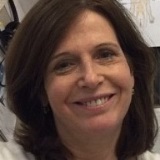
Alison Heick Varghese, Principal Scientist, Pfizer Inc.

Alison H. Varghese has a B.A. in biology from Rutgers University, an M.S. in cellular and molecular biology from Northeastern University and a Certificate in Project Management from Boston University. After a decade in academia, Alison joined Pfizer as a protein biochemist. As Principal Scientist, she uses her protein chemistry and structural biology expertise to support structure-based medicine design efforts in delivering effective medicines to patients in need. Alison has co-authored over twenty-five peer-reviewed publications.

Gregory L. Verdine, PhD, President & CEO, LifeMine Therapeutics

Gregory L. Verdine is Erving Professor of Chemistry and Harvard College Professor, emeritus, at Harvard University and Harvard Medical School; Co-founder, President and Chief Executive Officer of LifeMine Therapeutics (with co-founders Rick Klausner and WeiQing Zhou); Co-founder (with Hal Barron) and Executive Chairman of VidaVinci; and Venture Partner at Andreessen Horowitz. Verdine is an award-winning university educator, pioneering life scientist and innovator, new modality drug discovery entrepreneur, venture capitalist, and successful zero-to-one biotech company-builder. In a distinguished academic career spanning over three decades at Harvard University and Harvard Medical School, Verdine pioneered two fields of science that meld basic research and new medicines discovery: chemical biology, the pursuit of chemistry in the service of uncovering the mysteries of biology; and new drug modalities, the discovery and development of novel structural classes of therapeutics. He is widely credited with having coined the term “drugging the ‘undruggable’” and having launched the now pervasive effort to achieve this goal in the small molecule and nucleic acid arenas. Verdine’s academic research have provided fundamental insights into how living organisms manage and preserve the information content of their genomes. He and his academic co-workers invented an important class of new-modality therapeutics, hyperstabilized •-helical peptides (also called “stapled peptides” and Helicons), which enable the drugging of targets previously considered “undruggable.” Hundreds of worldwide have conducted basic, translational and clinical research on this new class of drugs. As Founder+CSO+CEO of multiple new modality drug discovery companies, Verdine has conceived of entirely new classes of drugs and deployed these to solve previously intractable problems in medicine. At FogPharma (now Parabilis Medicines), Verdine led the team that discovered FOG-001, presently in Phase II clinical development as the first and only direct transcriptional inhibitor of beta-catenin, the most prevalent oncogenic driver in humans. He and his team at Warp Drive Bio invented the first structure-based design strategy for the discovery of “molecular glues”, and this has led directly to the portfolio of Ras-ON-targeting drugs currently in clinical development by Revolution Medicines; at Wave Life Sciences, he pioneered the pre-clinical discovery and clinical development of stereopure nucleic acids, including drugs that effect diseased-allele-specific RNA knockdown in Huntington’s patients, and including the first RNA codon correction in patients suffering from alpha-1antitrypsin deficiency. At LifeMine Therapeutics, Verdine and team conducted the first large-scale fungal genome-mining expedition that has led to a completely new and improved tissue-sparing calcineurin inhibitor for transplantation and autoimmune disorders, which entered clinical development in April 2025. Verdine has been among the most active and successful entrepreneurs translating academic research into new medicines. As an academic founder at Harvard and a Venture Partner at several prominent life science investment firms, including Texas Pacific Group, Third Rock Ventures and currently Andreessen Horowitz, he is responsible for the creation of a dozen biotechnology companies, including Enanta Pharmaceuticals (NASDAQ: ENTA), Variagenics (NASDAQ: VGEN, acquired by Nuvelo), Gloucester Pharmaceuticals (acquired by Celgene), Eleven Biotherapeutics (NASDAQ: EBIO), Warp Drive Bio (NASDAQ: RVMD via merger), WaVe Life Sciences (NASDAQ: WVE), and the private companies FogPharma, LifeMine Therapeutics, and VidaVinci. These companies have succeeded in gaining FDA approval for multiple breakthrough medicines, with a dozen more presently in clinical development. Verdine moved beyond company ideation and creation into company-building and management at WaVe Life Sciences, Warp Drive Bio, and currently FogPharma, LifeMine, BiggieBio and VidaVinci. On the non-profit side, Verdine originated and co-founder founded the paired non-profits Gloucester Marine Genomics Institute and Gloucester Biotechnology Academy, the latter of which has trained over 150 high school graduates for jobs in the biotechnology sector. He is a Fellow of the Royal Society of Chemistry and the American Association for the Advancement of Science; he has received a Presidential Investigator Award, the Nobel Laureate Signature Award, the AARC Award for Excellence in Chemistry in Cancer Research and an honorary PhD degree from Clarkson University, and an MS degree from Harvard University. Verdine received bachelor of science and doctoral degrees in chemistry from St. Joseph’s University and Columbia University, respectively. He has authored over 150 research papers, primarily in top-tier, peer-reviewed academic journals.
- Emerging Cancer Targets for Multispecifics, ADCs, and Biologics
- AI/ML-Enabled Drug Discovery - Part 2
- AI/ML-Enabled Drug Discovery - Part 1
- GPCR-Based Drug Discovery
- Targeting Transcription Factors & Regulators
- Lead Generation Strategies
- Small Molecules for Cancer Targets
- Targeting MASH & Obesity
- Antibodies Against Membrane Protein Targets
- RNA & DNA Targeting Small Molecule Drugs
- Emerging Drug Targets: Identification & Validation
- Degraders & Molecular Glues - Part 2
- Degraders & Molecular Glues - Part 1
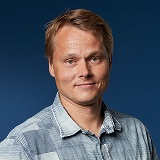
Mikkel Vestergaard, PhD, Principal Scientist, Medicinal Chemistry, Amgen Research Copenhagen

Mikkel Vestergaard joined Nuevolution (now Amgen Research Copenhagen) in 2008 and have fulfilled a number of roles including initiation of the parallel chemistry group which resynthesize small molecules hit from DEL libraries in µmol scale and later as lead chemist for a number of target project from pre-screening activities through to lead optimization including PRMT5.
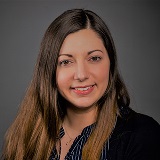
Erika Vieira Araujo, PhD, Principal Research Investigator, Discovery Chemistry, Arvinas Inc.

Erika Araujo is a Principal Research Investigator in the Medicinal Chemistry group at Arvinas where she leads multiple research programs aimed at the discovery of PROTAC therapeutics. Prior to Arvinas, she worked in the Discovery Chemistry group at Bristol-Myers Squibb in the areas of oncology and immuno-oncology. Her 12 years of experience have spanned the breadth of drug discovery from target validation and lead generation to lead optimization and development candidate nomination. She is a co-inventor on patents and coauthor of multiple peer-reviewed publications covering the targeted protein degradation field. She earned a PhD in organic chemistry from Boston College where she trained under Professor Amir Hoveyda and a B.S. from Fairfield University.

Fabien Vincent, PhD, Consultant; formerly Pharmacology Lab Head, Pfizer Inc.

Fabien Vincent is a senior drug discovery scientist with experience as both an in vitro pharmacology group leader and a drug discovery project leader. He gained expertise in pharmacology at Pfizer (2010-2025) as a laboratory head in the Primary Pharmacology Group. There, his laboratory supported the small molecule portfolio of the Immunology & Inflammation research unit, helping deliver 15 clinical candidates with two becoming FDA approved drugs (Abrocitinib, Ritlecitinib). His remit spanned target identification & validation, designing and executing hit identification & validation strategies, structure-activity relationships (SAR) support, mechanistic studies and study reports for the FDA. His main research interests are centered on drugging tough-but-well-validated targets and improving the translation of preclinical research to patients using physiologically relevant assays and phenotypic screening.
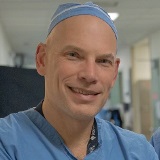
Patrick Wagner, Director of Surgical Oncology, Allegheny Health Network

Director of Surgical Oncology and transactional scientist.
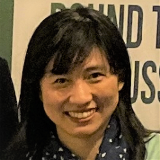
Yuan Wang, PhD, Head of Research Analytics, UCB Pharma

Dr. Wang is heading Research Analytics of UCB Pharma’s Data and Translational Sciences department, based in Cambridge, MA. In her current role she brings computational analytics and data strategy to tackle challenges in novel chemical biology and therapeutic modality in severe diseases. Prior to joining UCB she was working for Novartis Institutes for Biomedical Research in Cambridge, MA, and F. Hoffman La Roche in Basel, Switzerland.

Shaomeng Wang, PhD, Warner-Lambert/Parke-Davis Professor of Medicine, Pharmacology & Medicinal Chemistry; Co-Director, Molecular Therapeutics Program, University of Michigan

Dr. Shaomeng Wang obtained his chemistry B.S. degree from Peking University in 1986 and his PhD in Chemistry from Case Western Reserve University in 1992 and did his postdoctoral training at NIH. Dr. Wang is currently the Warner-Lambert/Parke Davis Professor in Medicine in the University of Michigan Medical School and professor of medicine, pharmacology and medicinal chemistry. Dr. Wang is the Director of University of Michigan Center for Therapeutic Innovation. Dr. Wang has served as the Editor-in-Chief of the Journal of Medicinal Chemistry, American Chemical Society since 2012. Dr. Wang has co-founded 5 biotech companies to develop novel small-molecule drugs invented from his laboratory and has advanced 7 compounds into clinical development. Dr. Wang has published >300 peer-reviewed papers and is an inventor of 55 issued US patents and hundreds of international patents. Dr. Wang was elected as Fellow of the National Academy of Inventors in 2014, Fellow of American Association for the Advancement of Science in 2019 and was inducted into the Fall of Fame of the Division of Medicinal Chemistry of the American Chemical Society (ACS) in 2020. Dr. Wang was the 2014 University of Michigan Distinguished Innovator and won the 2020 Division of Medicinal Chemistry Award of ACS.
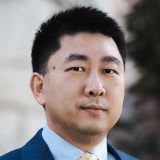
Jin Wang, PhD, Director, Biochemistry and Molecular Pharmacology, Baylor College of Medicine

Dr. Wang received his B.S. degree in chemistry from Peking University and PhD in physical organic chemistry from the Ohio State University. As a postdoc at the University of North Carolina at Chapel Hill, he worked in the field of drug delivery and nanomedicine. His independent research centers on chemistry and serves biology, spanning from chemical biology tools and method development to rational design of therapeutics, including small molecule inhibitors, protein degraders, and antibody-drug conjugates. His scientific contribution has been recognized by multiple awards including the Distinguished Faculty Award from Chinese-American Chemistry & Chemical Biology Professors Association and Michael E. DeBakey, MD, Professorship in Pharmacology.

Shaopeng Wang, PhD, Research Professor, Bioelectronics & Biosensors Center, Arizona State University

Dr. Shaopeng Wang (pronounce: Shao-Pong Wong) is an associate professor jointly appointed by School of Biological and Health Systems Engineering (SBHSE) and Biodesign Center for Bioelectronics and Biosensors (BCBB) of Arizona State University (ASU). Dr. Wang has a BS in biology and MS in biophysics from Tsinghua University, a PhD in physical chemistry from University of Miami, and a postdoc training in Physics at Florida International University. Dr. Wang’s research interest is in the development of optical biosensors and bioanalytical instrumentations for functional study of molecular and cellular activities. Dr. Wang has 8 issued US patents and over 140 journal publications, with an H-index of 52.

Charles Wartchow, PhD, Associate Director, Discovery Sciences, Novartis Institutes for BioMedical Research

Charles Wartchow is a collaborative, multi-disciplinary scientist with expertise in protein biochemistry, organic chemistry, and analytical methods. His focus at Novartis is early-stage drug discovery, with an emphasis on hit-finding, hit validation and the characterization of ligands, glues and bifunctional molecules for targeted-protein degradation.

Shira Weingarten-Gabbay, PhD, Assistant Professor, Department of Microbiology; Head, Laboratory of Systems Virology, Harvard Medical School

Dr. Weingarten-Gabbay is an Assistant Professor of Microbiology at Harvard Medical School and an Associate Member at the Broad Institute of MIT and Harvard. She completed her BSc in Medical Sciences at the Hebrew University, her MSc in the department of Molecular Genetics at the Weizmann Institute, and her PhD in the Department of Computer Science & Applied Mathematics at the Weizmann Institute as a Clore scholar. After graduating, she joined the laboratories of Pardis Sabeti at the Broad Institute and Charlie Rice at the Rockefeller University to pursue postdoctoral research in virology. In 2025, she launched the Laboratory of Systems Virology at Harvard Medical School. She is the recipient of the Blavatnik Regional Award; the RNA Society Award for Innovation in High-Throughput Biology; the Broad Ignite Award; the Eric S. Lander Prize in Scientific Excellence; and postdoctoral fellowships from HFSP, EMBO, the Gruss-Lipper Foundation, the Zuckerman STEM Leadership Program, and the Rothschild Foundation. She was named one of Globes magazine’s 40 Under 40, recognizing Israel’s most promising young people.
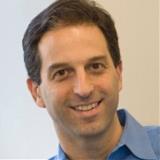
Ron Weiss, PhD, Professor, Biological Engineering, Massachusetts Institute of Technology

Ron Weiss is Professor in the Department of Biological Engineering and in the Department of Electrical Engineering and Computer Science at the Massachusetts Institute of Technology, and is the Director of the Synthetic Biology Center at MIT. Professor Weiss is one of the pioneers of synthetic biology. He has been engaged in synthetic biology research since 1996 when he was a graduate student at MIT and where he helped set up a wet-lab in the Electrical Engineering and Computer Science Department. After completion of his PhD, Weiss joined the faculty at Princeton University, and then returned to MIT in 2009 to take on a faculty position in the Department of Biological Engineering and the Department of Electrical Engineering and Computer Science. The research pursued by Weiss since those early days has placed him in a position of leadership in the field, as evidenced both by publications from his lab as well as a variety of awards and other forms of recognition. He pursued several aspects of synthetic biology, including synthesis of gene networks engineered to perform in vivo analog and digital logic computation. The Weiss lab also published seminal papers in synthetic biology focused on programming cell aggregates to perform coordinated tasks using engineered cell-cell communication with chemical diffusion mechanisms such as quorum sensing. Several of these manuscripts were featured in a recent Nature special collection of a select number of synthetic biology papers reflecting on the first 10 years of synthetic biology. While work in the Weiss lab began mostly with prokaryotes, during the last 5 years a majority of the research in the lab shifted to mammalian synthetic biology. The lab focuses both on foundational research, e.g., creating general methods to improve our ability to engineering biological systems, as well as pursuing specific health related applications where synthetic biology provides unique capabilities.http://groups.csail.mit.edu/synbio/
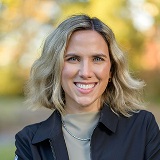
Blair Willette, PhD, Associate, KdT Ventures

I'm a scientist turned investor at KdT Ventures, where I focus on backing early-stage companies operating at the intersection of chemistry, biology, and computation to help build the physical layer of the world. At KdT, I source new opportunities, lead diligence, and guide investment decisions across biotech, medical devices, chemicals, and climate tech. I also support the management of approximately $300M across our four funds and work closely with our 70+ portfolio companies. I earned my PhD in Pharmacology from Duke University, where my research focused on developing tools to study spatially selective GPCR signaling at single-cell resolution to uncover mechanisms underlying both therapeutic and adverse drug effects.
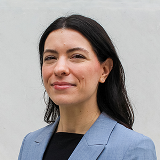
Molly Wilson, PhD, Senior Scientist, Foghorn Therapeutics

Molly Wilson, Ph.D., is a Senior Scientist on the Biology team at Foghorn Therapeutics. Her work focuses on understanding mechanisms of action of selective CBP degraders and elucidating combination strategies with these degraders in solid tumor indications. Prior to joining Foghorn, Molly completed her Ph.D. in Biology at Massachusetts Institute of Technology under the direction of Dr. Jacqueline Lees at the Koch Institute for Integrative Cancer Research, where she studied transcriptional regulators of cancer and stem cell biology.
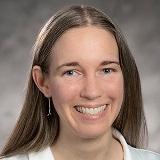
Laura M. Wingler, PhD, Assistant Professor, Pharmacology and Cancer Biology, Duke University School of Medicine

Laura Wingler, Ph.D. is an Assistant Professor in Pharmacology & Cancer Biology at Duke University. Wingler received her Ph.D. in Chemistry from Columbia University and then completed postdoctoral training in the Lefkowitz laboratory in the Department of Medicine at Duke University. In July 2020, she moved to the Department of Pharmacology and Cancer Biology at Duke University to open her independent research laboratory. The Wingler lab studies the molecular mechanisms of G protein-coupled receptors, the largest single class of drug targets, using approaches ranging from biochemistry to cell biology to pharmacology. Wingler is particularly interested in understanding why different ligands for the same receptor evoke different physiological responses, a phenomenon that has major implications for drug design.

Nicholas Woodall, PhD, Scientist, Computational Platform, Visterra Inc.

Nicholas Woodall is a PhD scientist at Visterra specializing in computational protein structure prediction and design. He conducted his postdoctoral research in the laboratory of David Baker at UW and completed his PhD in Biochemistry from the lab of James Bowie at UCLA.
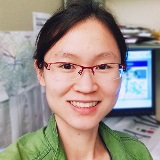
Huixian Wu, PhD, Structural Biology Lab Head, Discovery Sciences, Medicine Design, Pfizer Worldwide Research & Development

Dr. Huixian Wu received her PhD in Structural Biology and Chemistry from the Scripps Research Institute (La Jolla, CA) in the laboratory of Prof. Raymond C. Stevens. While in Stevens lab, Dr. Wu focused on G protein-coupled receptor (GPCR) crystallography where she determined the crystal structures of several important human GPCRs, including the k-opioid receptor, metabotropic glutamate receptor, and smoothened receptor. After completing her PhD, Dr. Wu joined Prof. Stuart L. Schreiber’s laboratory in the Broad Institute of Harvard and MIT (Cambridge, MA) for postdoctoral research, working on structure-based drug development (SBDD) targeting inflammatory bowel diseases. Currently, Dr. Wu is a Principal Scientist leading a Crystallography lab at Pfizer (Groton, CT). Her lab is supporting SBDD of diverse therapeutic targets across multiple disease areas in Pfizer.

Thomas Wynn, PhD, Director, Medicinal Chemistry, Rgenta Therapeutics

>20 years of medicinal chemistry and scientific experience in pharma and biotech across multiple therapeutic areas and small molecule modalities. Experience in activities throughout all stages of drug discovery and early-stage drug development in the pharmaceutical industry contributing to over 30 publications and patents, multiple development candidates, 3 INDs, and 2 marketed drugs.
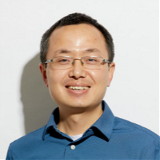
Hua Xu, PhD, Director, Head of Chemical Biology and Proteomics, AstraZeneca

Hua Xu received his PhD in Chemistry from Stony Brook University. After conducting his post-doctoral research at Albert Einstein College of Medicine, he joined Pfizer in 2013, and later received ACS Young Investigator Award in 2016. He led the chemical biology efforts for a number of Pfizer’s drug discovery programs in several therapeutic areas, such as immunology and inflammation, rare diseases, and cardiovascular & metabolic diseases. Hua then worked as Associate Director of Chemical Biology at Cygnal Therapeutics from 2020 to 2021, and built the chemical biology platform to support small molecule drug discovery programs and facilitate target discovery. Hua currently leads Chemical Biology and Proteomics group at AstraZeneca that leverages chemical tools and proteomics technologies to enable target discovery and supports projects across therapy areas.

David Yang, PhD, Director, Research, Panolos Biosciences

Dr. David Yang is currently serving as Research Director at Panolos Bioscience, where he leads innovative projects in multi-specific protein drug development. He holds a Ph.D. in Immunology and possesses extensive experience in all stages of biologics development, from lead candidate screening to IND submission. His primary focus is on the PB203 project, a cutting-edge bi-modular multi-specific Fc fusion protein designed to simultaneously target PD-L1, VEGF-A, and PLGF. Through this advanced therapeutic approach, Dr. Yang aims to address complex diseases by harnessing synergistic mechanisms in immuno-oncology and tumor microenvironment reshaping.
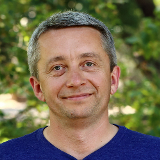
Vladimir Yarov-Yarovoy, PhD, Professor, Physiology and Membrane Biology, University of California, Davis

Dr. Vladimir Yarov-Yarovoy earned an MS Degree in Physics at the Moscow State University in Moscow, Russia, and then PhD Degree in Biochemistry and Molecular Biology at the Oregon Health Science University in Portland, Oregon. Dr. Yarov-Yarovoy was a postdoctoral fellow in Biophysics and Computational Biology and then a Research Assistant Professor in the Department of Pharmacology at the University of Washington in Seattle, Washington. He joined UC Davis as an Assistant Professor in Physiology and Membrane Biology in 2011 and became a full Professor in 2020.

Libin Ye, PhD, Associate Professor, Molecular Biosciences, University of South Florida

Dr. Ye joined the Department of Molecular Biosciences at University of South Florida as a Principal Investigator in 2018, and became an affiliate member at Moffitt Cancer Research Center, Tampa, FL in 2019. The long-term goal of his research is to explore 19F NMR approaches probing and quantifying conformational states of membrane proteins (GPCRs) at a high resolution, and to determine the roles of each conformational states in receptor functioning, through studying their conformational transitions, dynamics, and connections to (patho)physiological activities. The developments of these tools would help us for the drug discovery. In particular, he proposed to use the 19F NMR to determine the true “ligand bias” by circumventing the “system bias” from cell-based biased ligand determination. His lab is also focusing on methodological innovations in resolving the structures for intermediate conformations/complexes of membrane proteins through the integration of NMR and cryo-EM techniques.
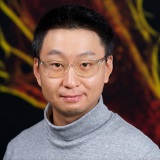
Jiaquan Yu, PhD, Research Scientist, Massachusetts Institute of Technology

Jason Yu is a Convergence Scholar at the Koch Institute and as a senior postdoctoral associate at MIT. Mentored by Professor Scott Manalis, Jason investigates the influence of physical and chemical parameters on cellular responses, including T cell differentiation, microbiota antigen presentation, and tumor progression. With a PhD in Tissue Engineering and four years of postdoctoral experience in engineering physics at MIT, Jason specializes in the precise manipulation of the physical microenvironment of tissue culture to study the underlying mechanism. His interdisciplinary approach merges tissue engineering and physics to uncover novel insights into cell behavior and disease processes.

Miguel Zamora-Porras, PhD, Astex

Dr. Miguel Zamora-Porras is a Research Associate in the Discovery Technology department of Astex Pharmaceuticals, where he applies cryo-EM and structural biology to support drug discovery projects. He obtained his PhD from the University of Basque Country in Spain, under the supervision of Dr. Mikel Valle, studying ribosomal complexes and filamentous viruses by cryo-EM. He then joined Prof. Neil McDonald’s group at The Francis Crick Institute in London as a Postdoctoral Researcher for the structural study of protein kinases in complex with regulatory partners.

Anqi Zhang, PhD, Postdoctoral Associate, Binghamton University

Dr. Anqi Zhang is a Postdoctoral Associate in Pharmacy and Pharmaceutical Sciences at Binghamton University, where she has been advancing her research since 2024. Previously, she was a Postdoctoral Research Associate at Purdue University and a Postdoctoral Fellow at Northwestern University. Dr. Zhang earned her Ph.D. in Organic Chemistry from Binghamton University in 2019. Her research focuses on developing and evaluating innovative therapeutic agents, particularly antibody-drug conjugates (ADCs) and immuno-stimulatory compounds. She specializes in targeted delivery systems, nanoscale delivery systems, and pH-sensitive prodrugs.
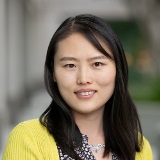
Yue Zhao, PhD, Principal Scientist, Biochemical Cellular & Pharmacology, Genentech Inc.

Dr. Yue Zhao earned her Ph.D. in Biochemistry and Molecular Biology from Peking Union Medical College, China. During her graduate studies, she discovered the NOD-like receptors (NAIPs) responsible for recognizing cytosolic bacterial pathogens. As a postdoctoral researcher, she made several groundbreaking discoveries, including identifying the cytosolic receptor for bacterial endotoxins (inflammatory CASPs) and the executor protein GSDMD involved in pyroptosis. Following a brief second postdoctoral study at Genentech, she joined their Biochemical, Cellular, and Pharmacology Department. Dr. Zhao is currently involved in drug discovery across various therapeutic areas, including malignant hematologic diseases, anti-fibrosis, and targeting tumor microenvironments (TMEs).
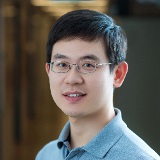
Jiawei Zhao, PhD, Post-doctoral Fellow, del Marmol Laboratory, Biological Chemistry and Molecular Pharmacology, Harvard University

Dr. Jiawei Zhao is a postdoctoral fellow at Harvard Medical School in the Department of Biological Chemistry and Molecular Pharmacology, working in the lab of Prof. Josefina del Mármol. His research focuses on the structural and functional characterization of insect olfactory receptors, using cryo-electron microscopy (cryo-EM) and electrophysiology. In 2024, he published the first structures of mosquito odorant receptors in Science. Dr. Zhao earned his PhD in Biology from Tsinghua University under the supervision of Prof. Brian Kobilka, where he investigated GPCR conformational dynamics using single-molecule fluorescence resonance energy transfer (smFRET) and double electron-electron resonance (DEER). His work on the µ-opioid receptor (µOR) was published in Nature in 2024. At this conference, Dr. Zhao will present recent advances in our understanding of µOR structural dynamics in response to a broad range of opioids and intracellular transducers, offering insights into the development of next-generation analgesics targeting µOR.

Wei Zhao, PhD, Senior Principal Scientist, Medicinal Chemistry, Amgen Inc

Wei Zhao is a Sr. Principal Scientist in the Medicinal Chemistry department at Amgen. Wei is currently the chemistry lead of a protein degradation program. Wei has previously been project team lead of an early-stage program and has worked on diverse types of targets across various therapeutic areas. Wei holds a Ph.D. from Pennsylvania State University in organic chemistry, and was a postdoctoral scholar at Caltech prior to joining Amgen.

Diego Del Alamo, PhD, Computational Biologist, GSK

Diego del Alamo is a computational biologist in the Protein Design & Informatics group at GSK since May 2022 in Switzerland. He is involved in efforts to design therapeutic antibodies and other proteins. Prior to this, Diego completed his PhD at Vanderbilt University in Nashville, TN, USA where he developed methods in Rosetta and AlphaFold for structural modeling of proteins, such as conformational change modeling, using electron paramagnetic resonance spectroscopy data.

Josefa dela Cruz-Chuh, Scientist 4, Genentech

Josefa dela Cruz-Chuh is a Scientist 4 in the Biochemical and Cellular Pharmacology Department at Genentech, a member of Roche. She has 20 years of biotech industry experience developing innovative high-throughput in vitro functional assay platforms to elucidate the mechanisms of action of different antibody therapeutics. She established the immune cell engager platform with imaging-based screening assays measuring the kinetics of T-cell-mediated tumor cell killing, cytokine production, and immune cell marker phenotyping for bispecific antibodies and TCR-T cell therapies. She has also developed high-throughput functional assays for screening the in vitro potency of antibody-drug conjugates (ADCs) and understanding intracellular processing and drug release using LC/MS/MS. Prior to joining Genentech, Josefa worked at the Children’s Hospital Oakland Research Institute studying infectious diseases. Josefa attended UC Berkeley, where she studied Molecular and Cell Biology with an emphasis in Biochemistry.
アジェンダ・講演者・スポンサー更新

